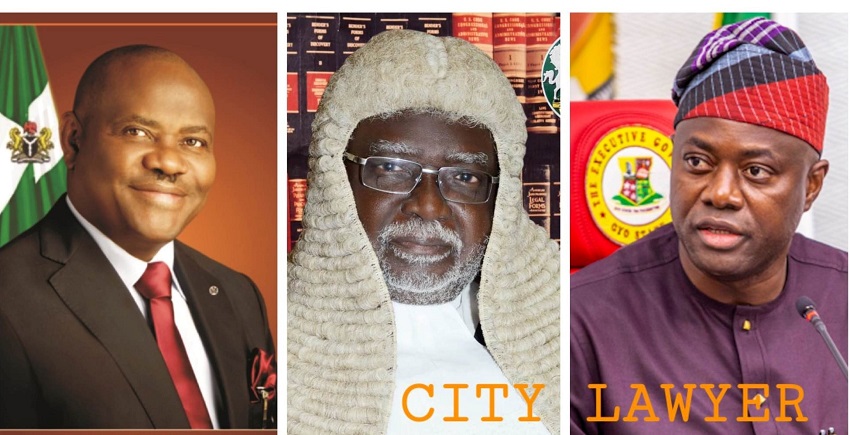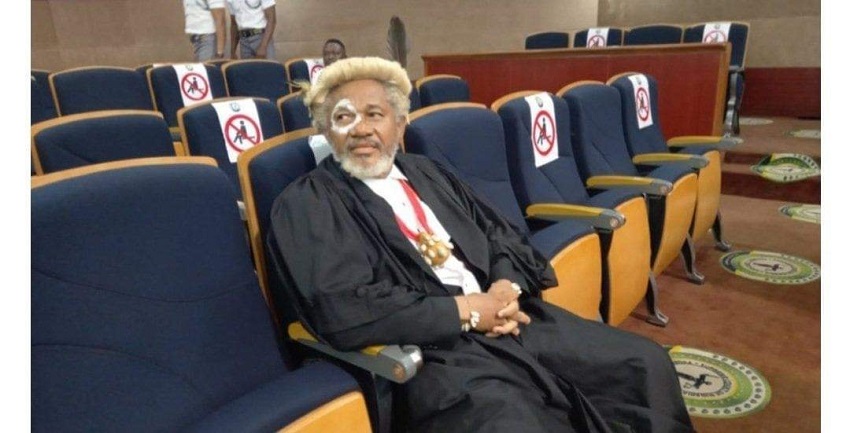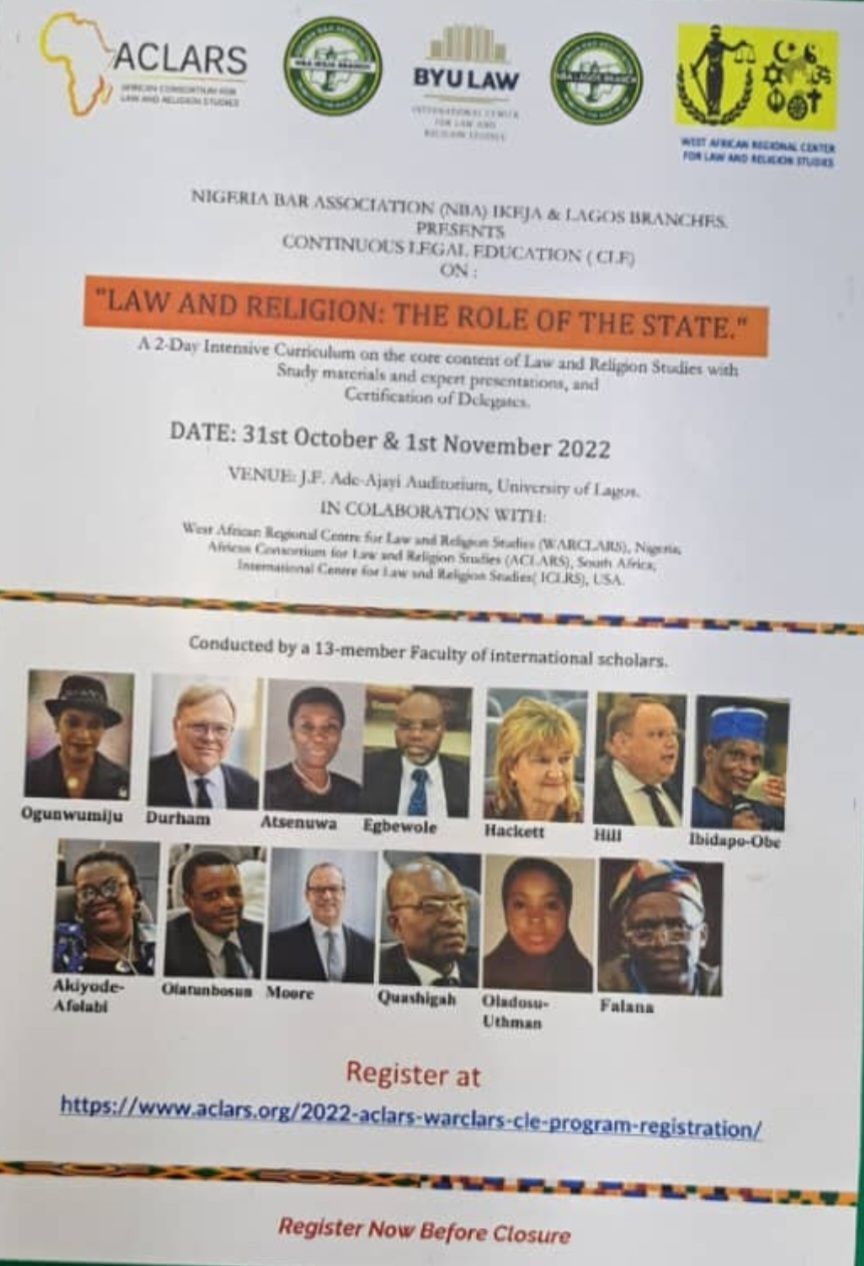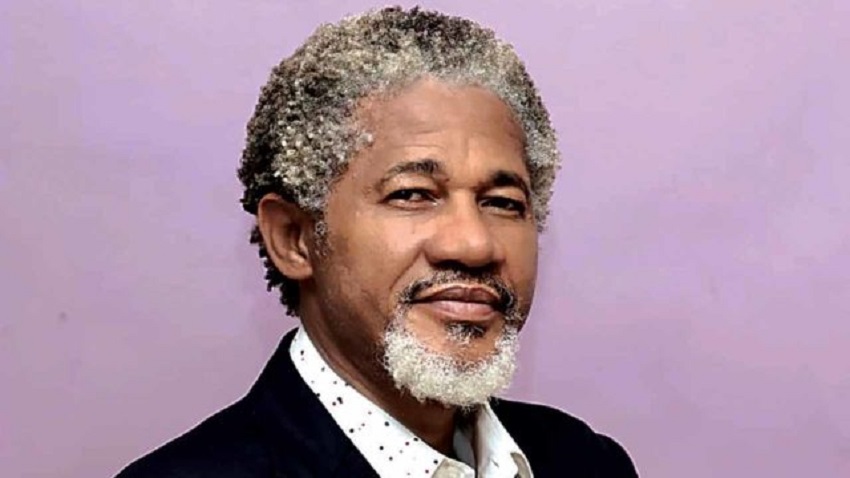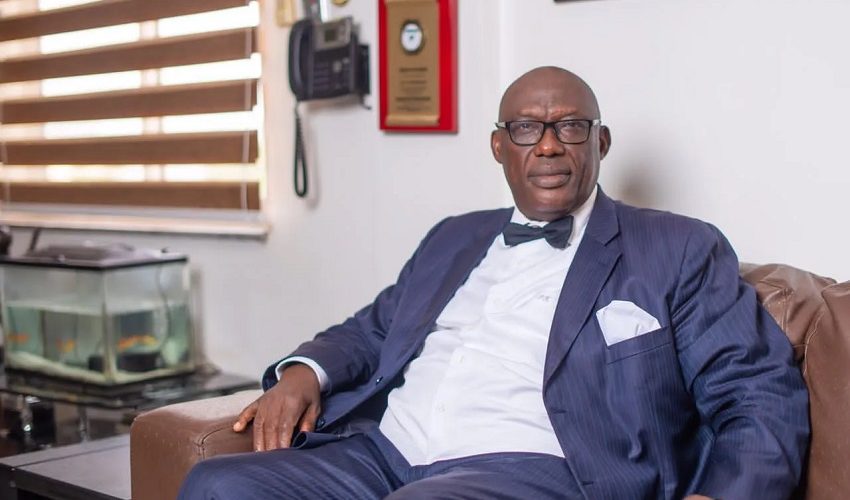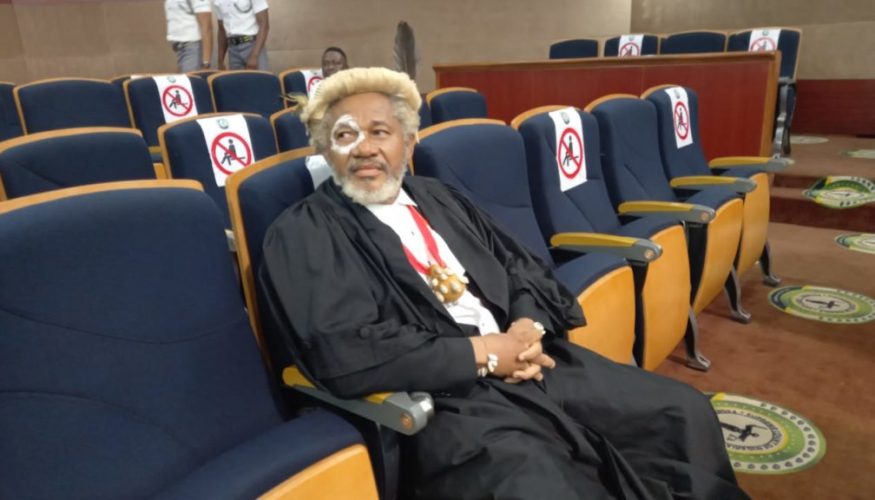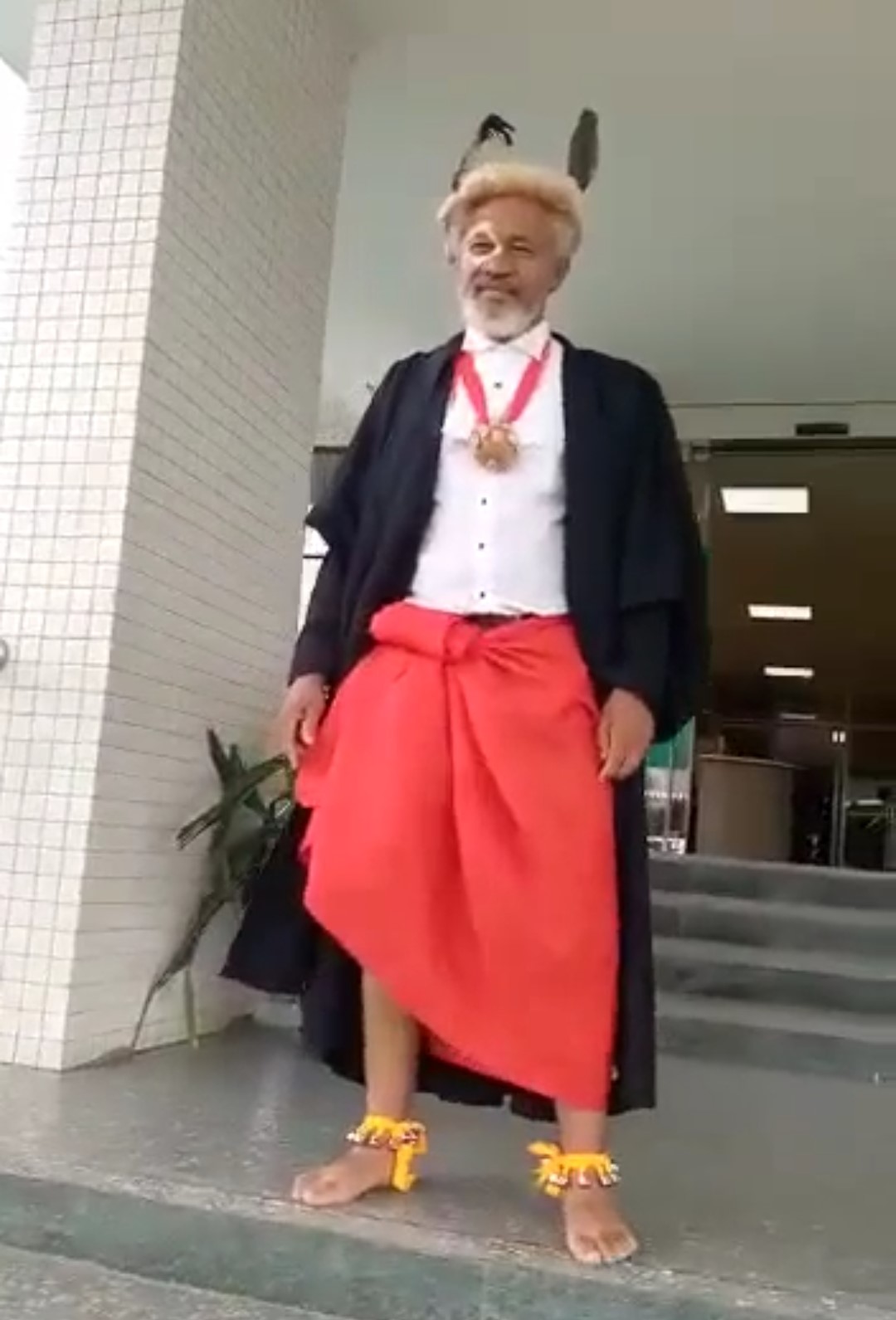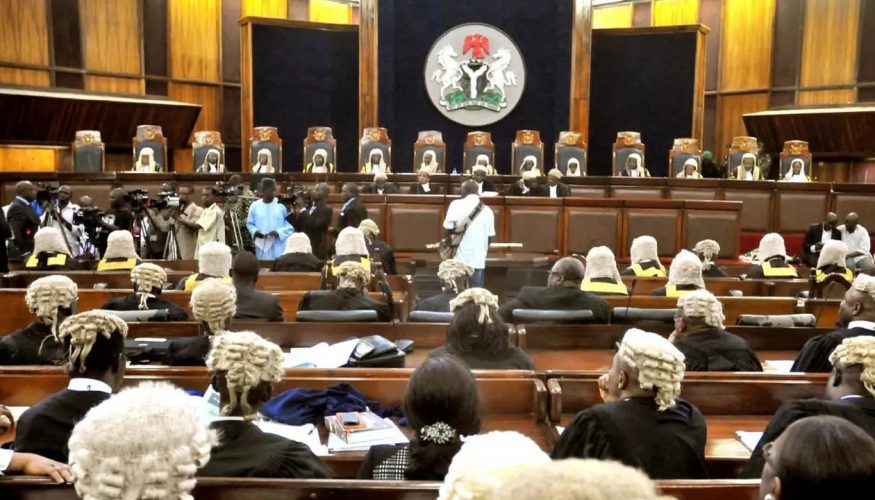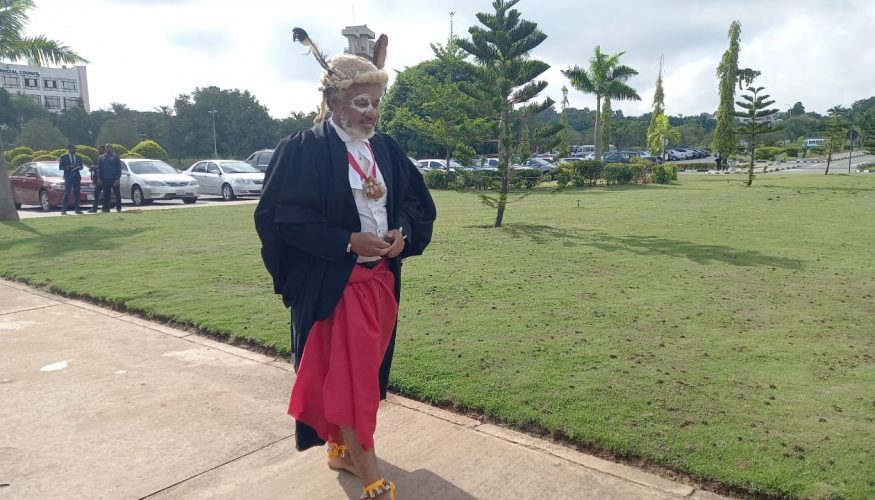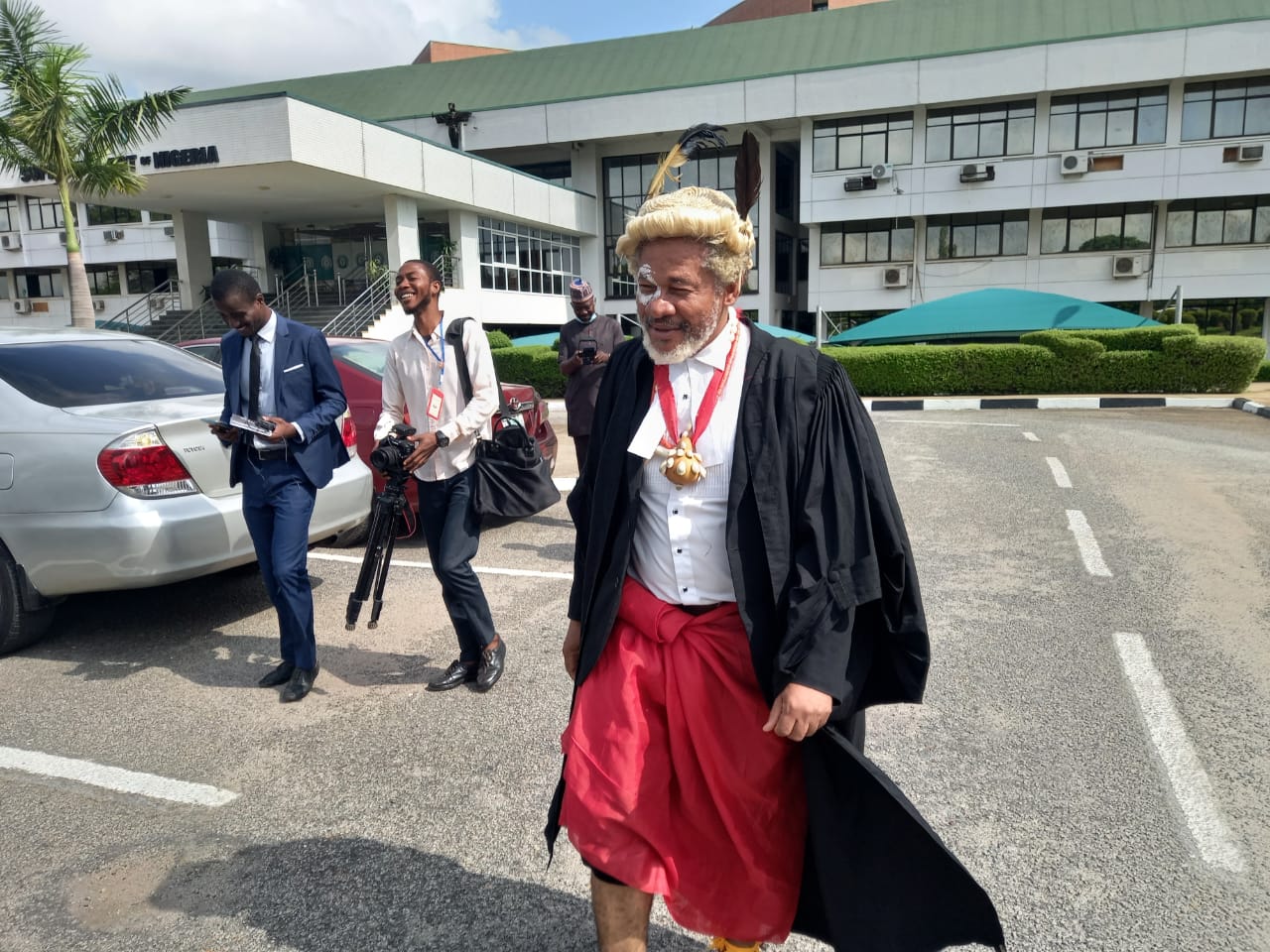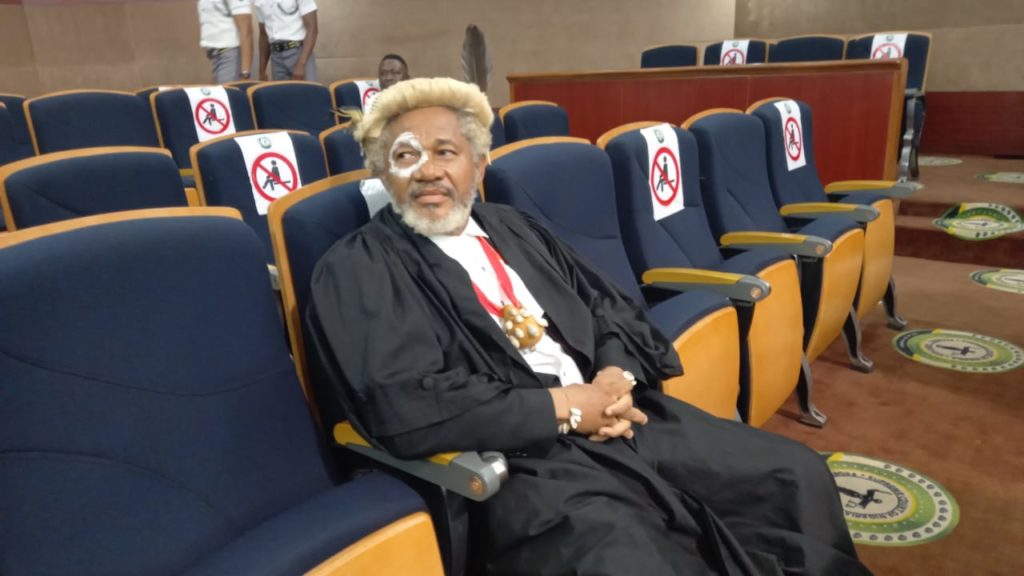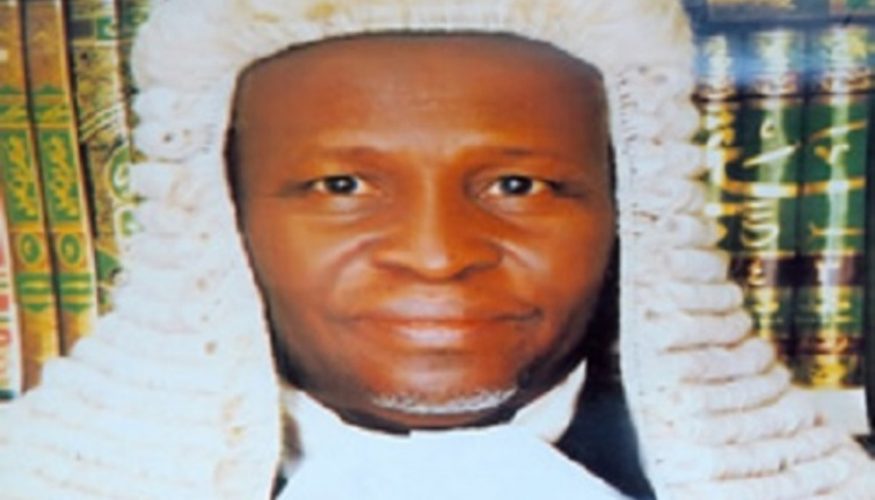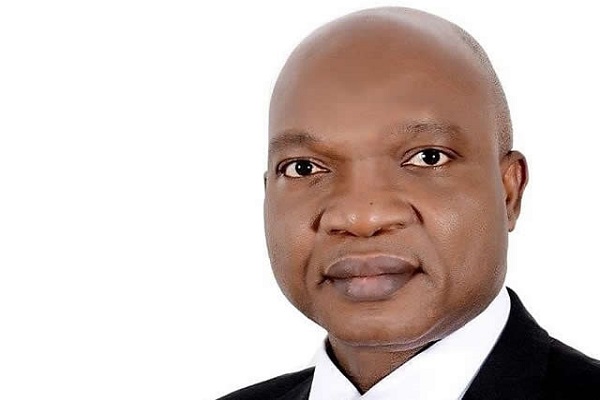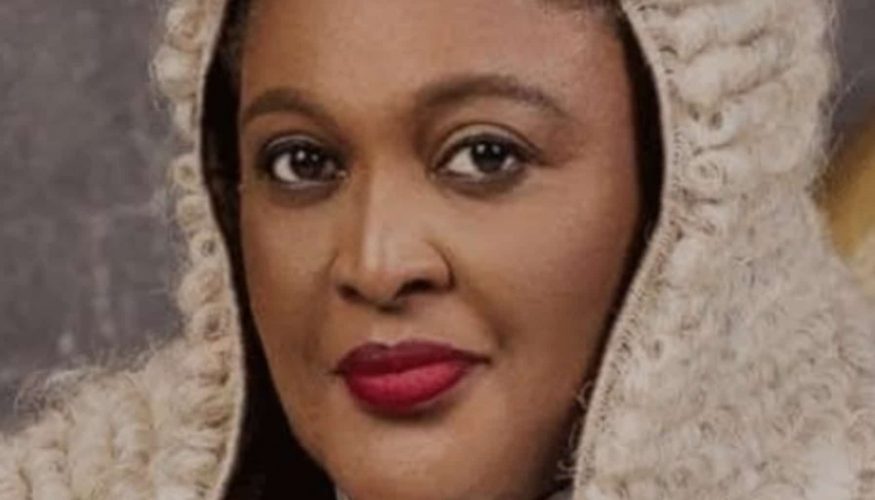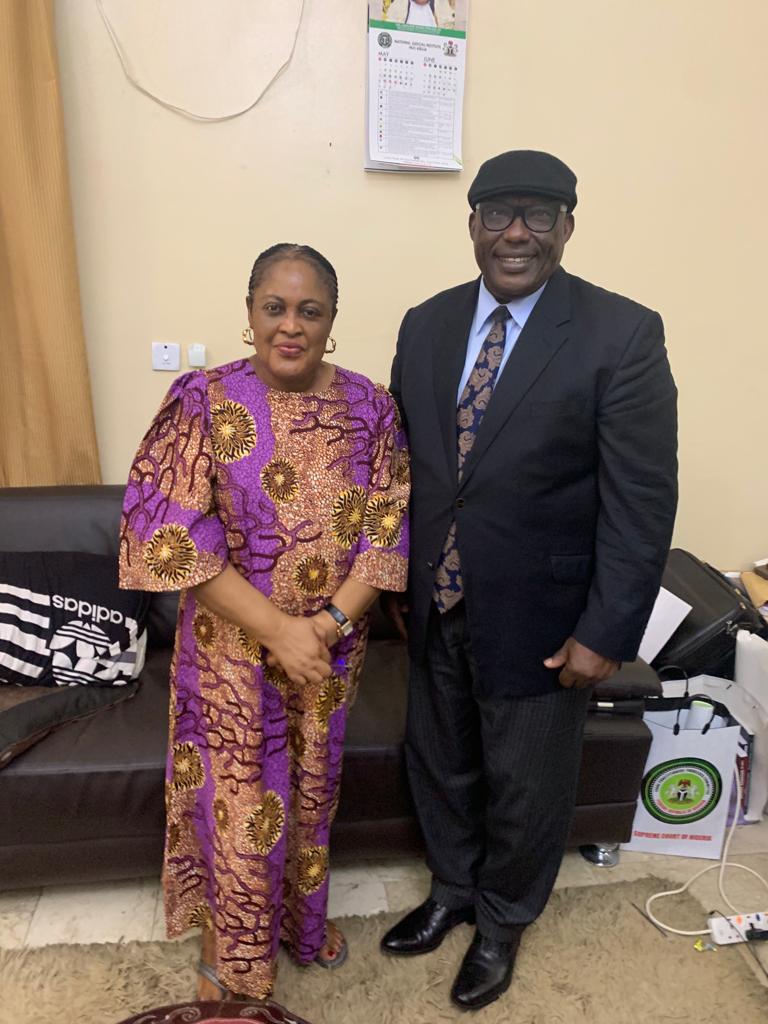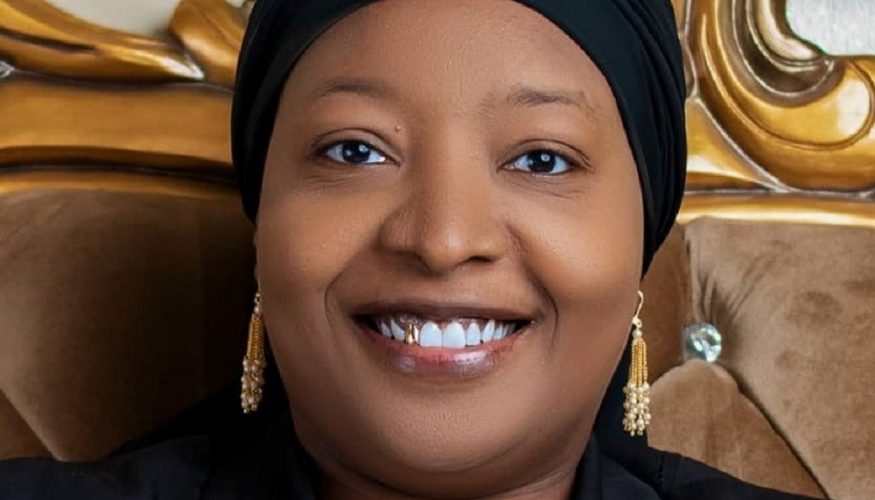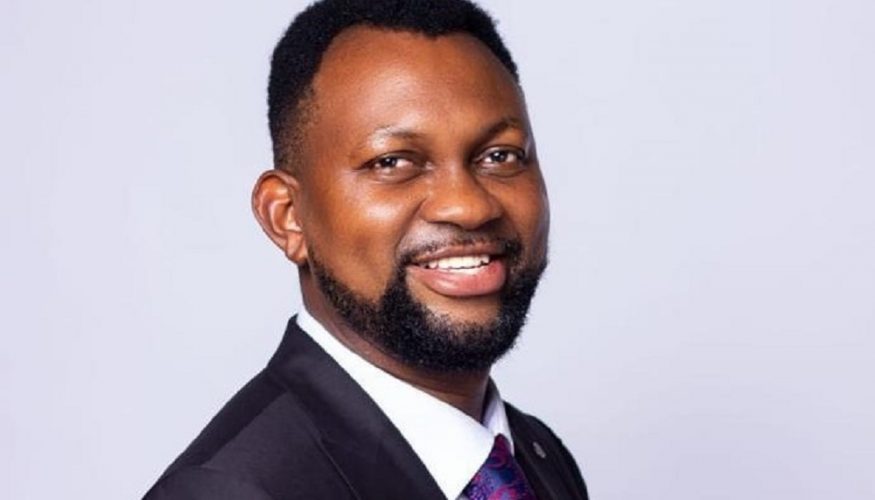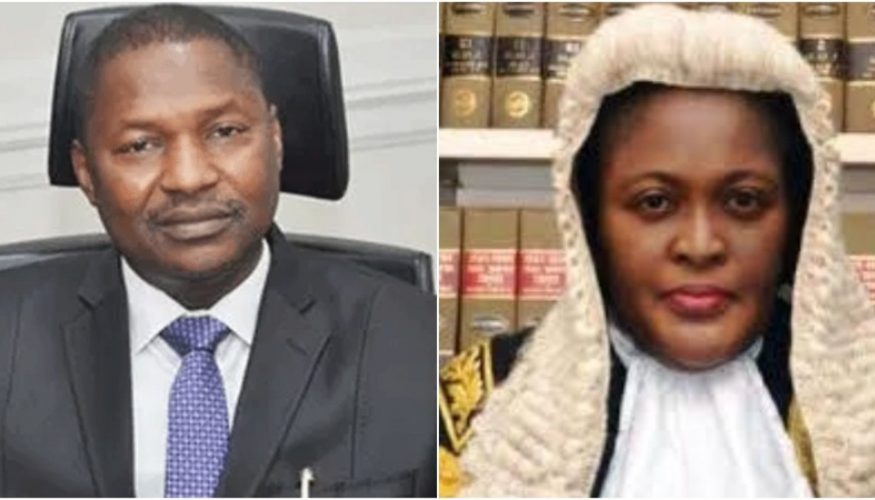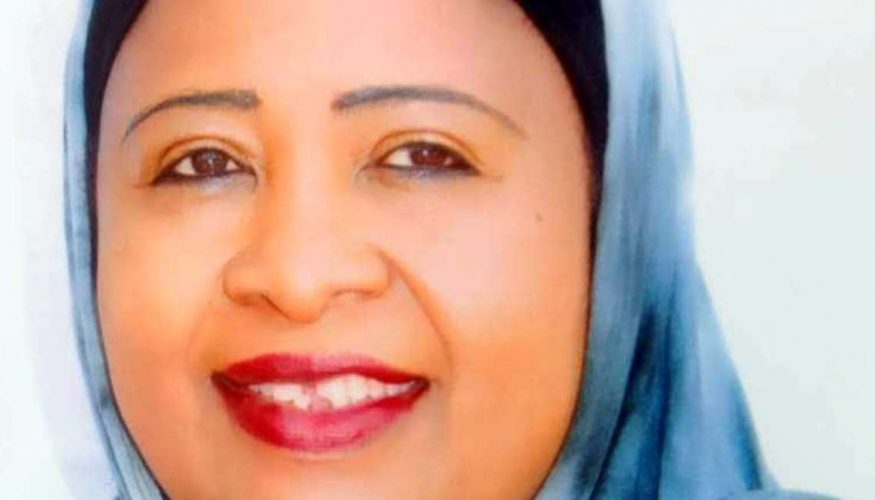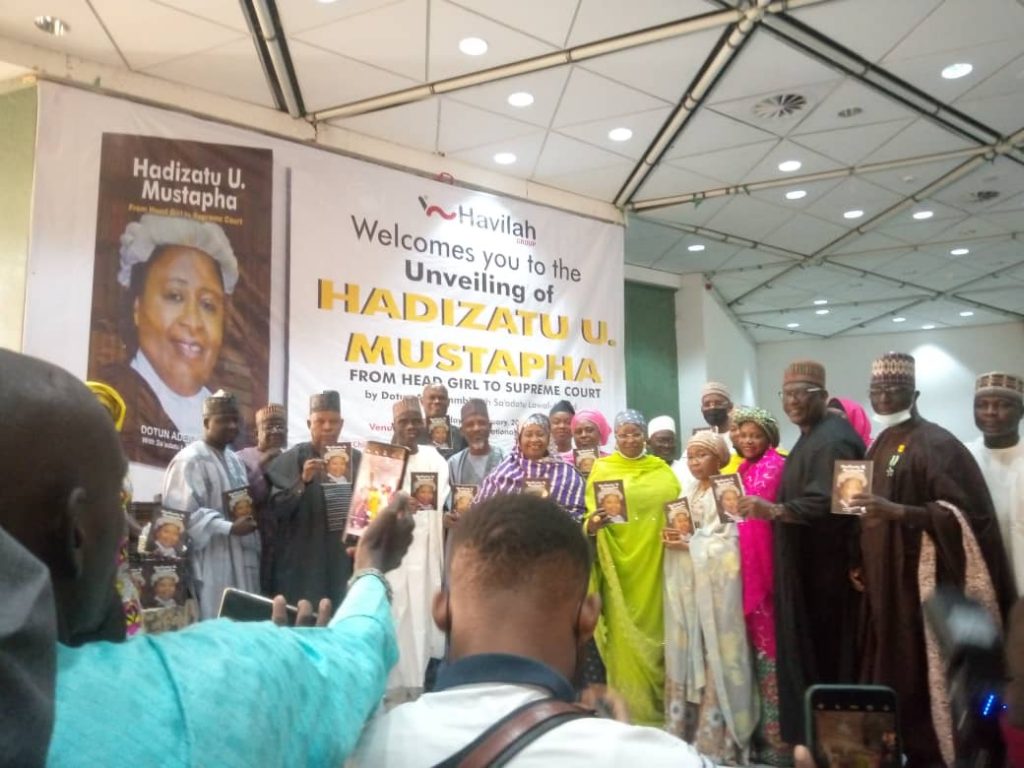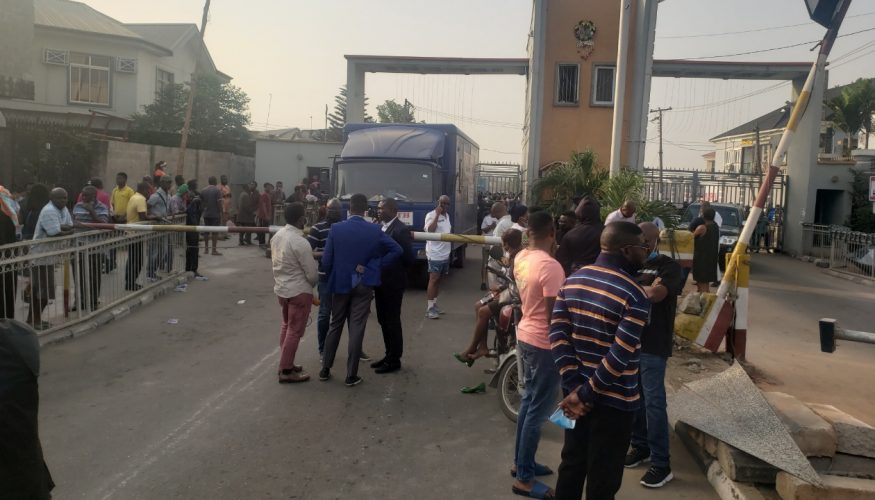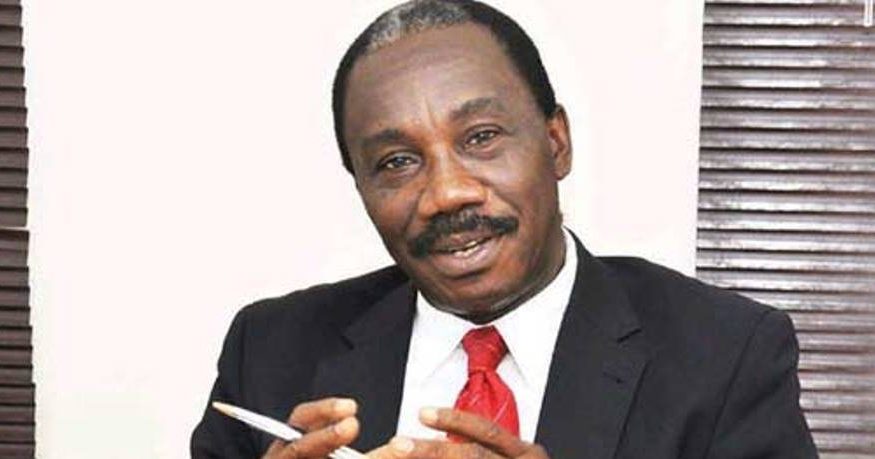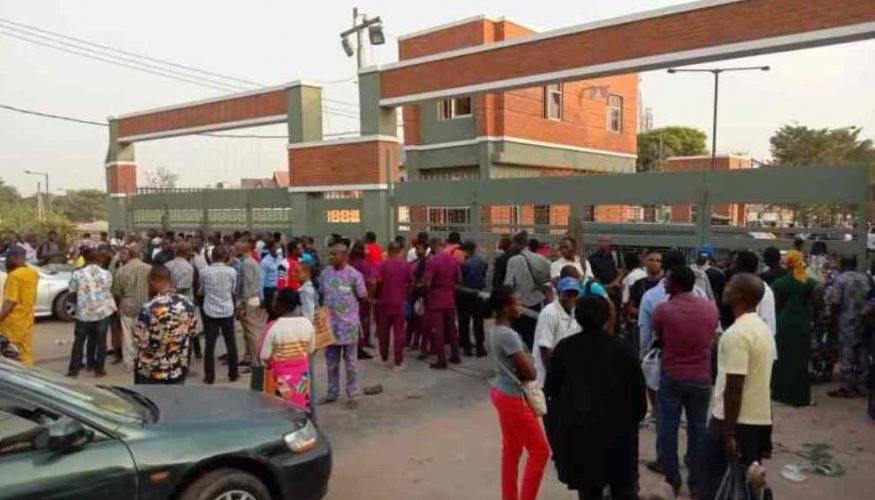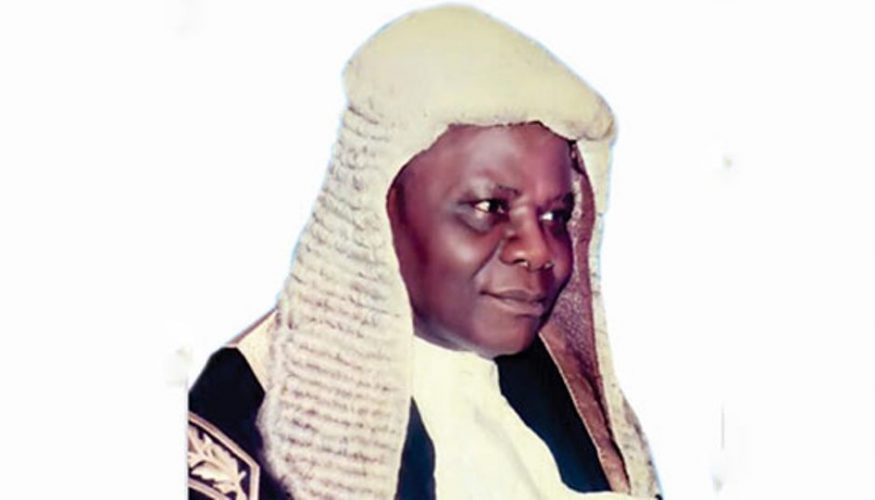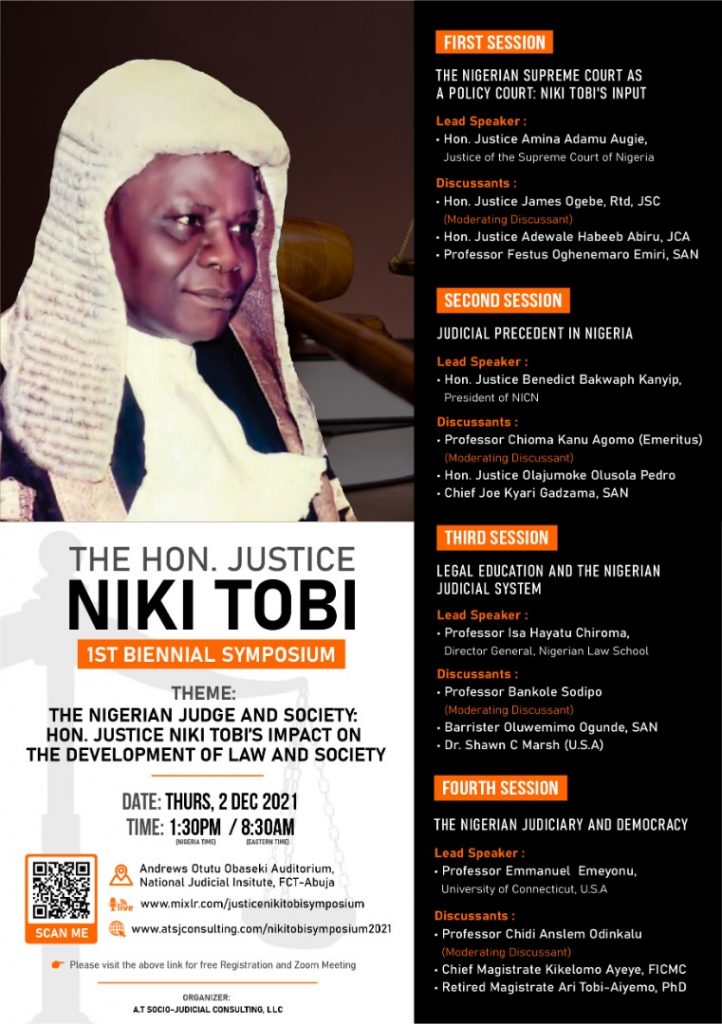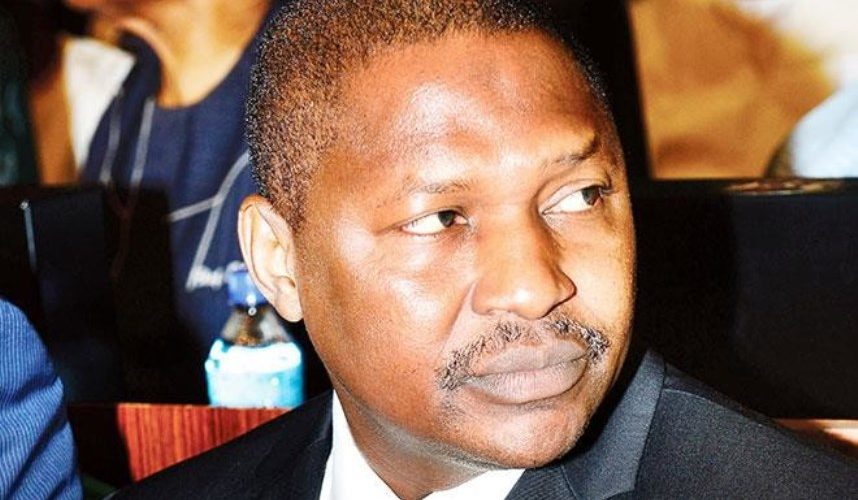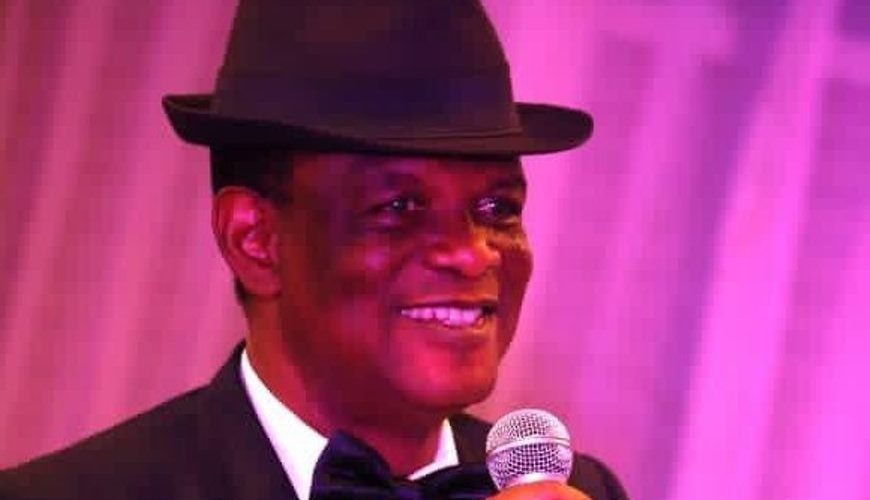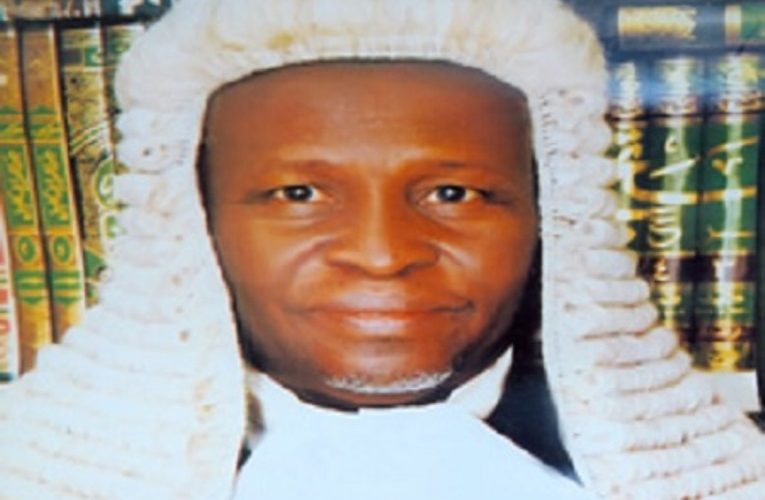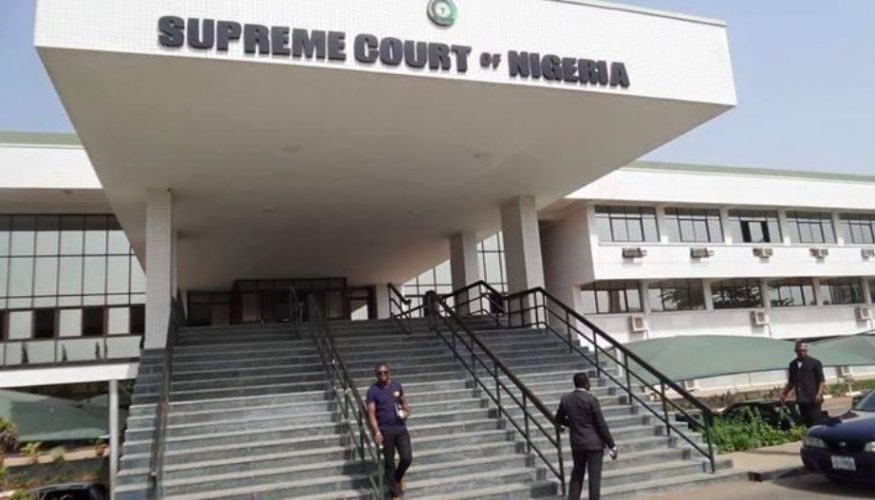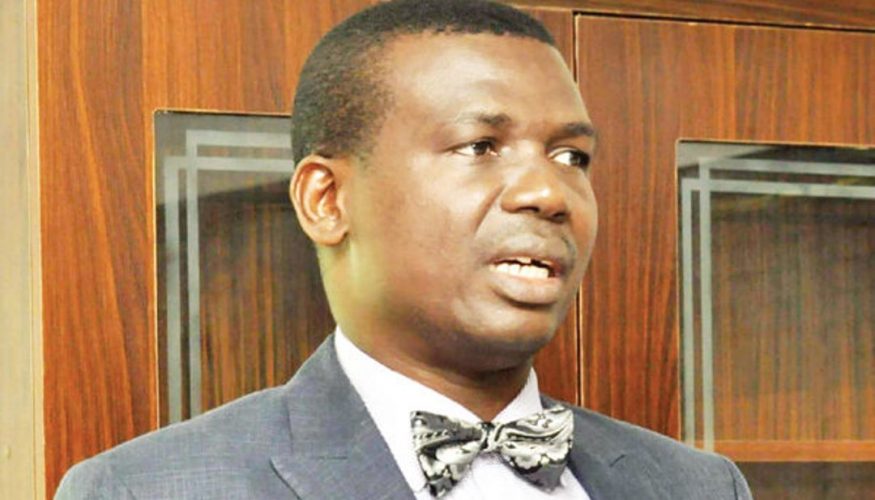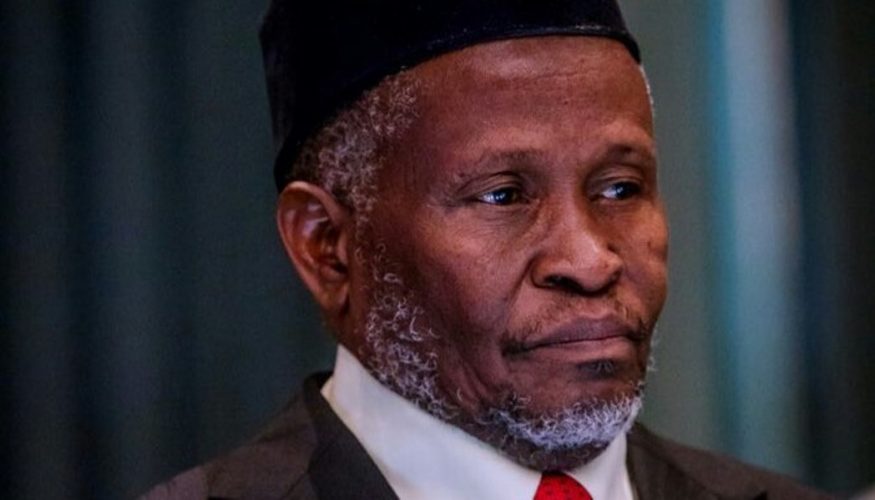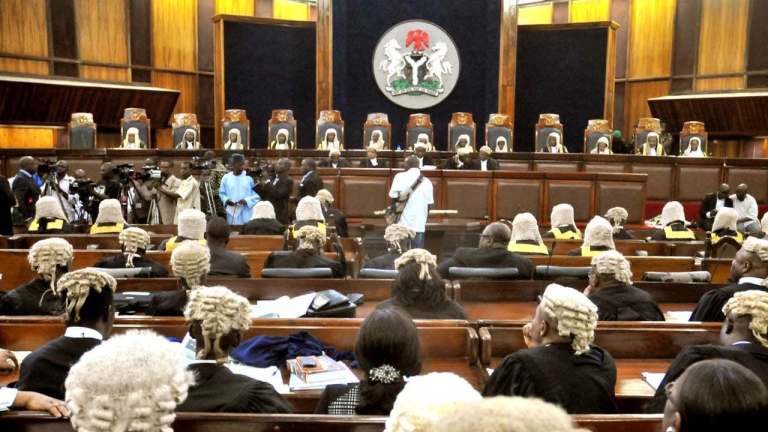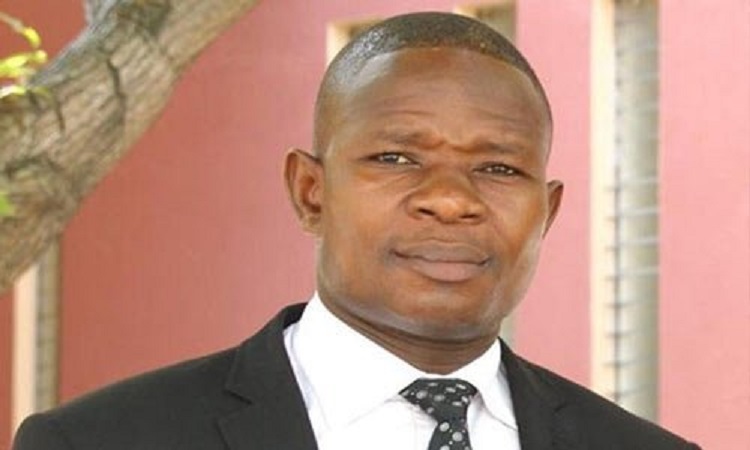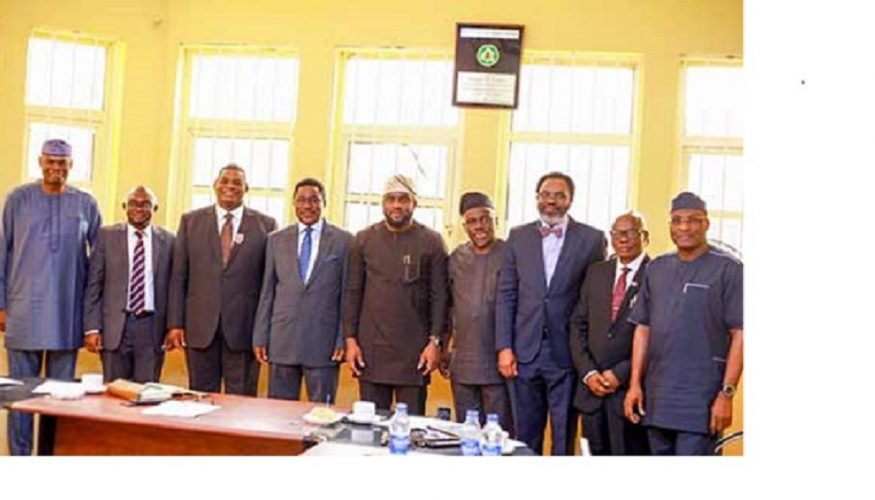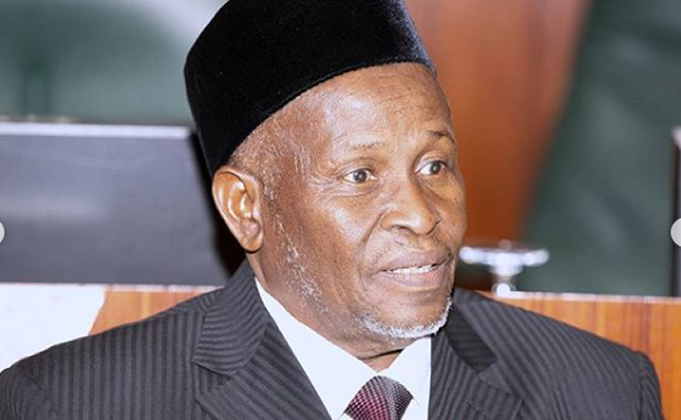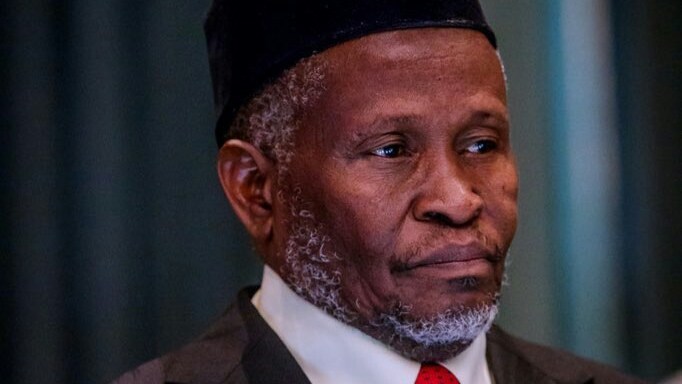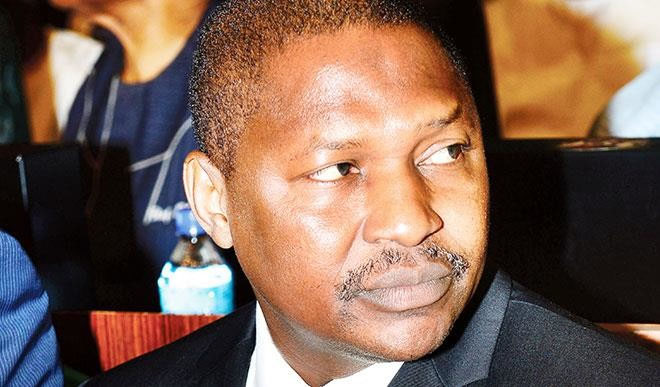The Tenancy Law imposes a strict procedure for the recovery of premises. Failure to comply with this near inflexible procedure invariably invalidates any suit for the recovery of possession. FEMI DODO argues that it may be a new dawn in this area of law in light of the Supreme Court decision in PILLARS V DESBORDES
Recovery of premises is governed by the tenancy law or the recovery of premises laws of each state as the case may be. The case of PILLARS NIG. LIMITED V DESBORDES & ANOR (2021) 12 NWLR (pt.1789) P.122., delivered on Friday, the 5th day of February 2021 by the Supreme Court is upon an appeal against the Judgment of the Court of Appeal, Lagos delivered on the 8th day of May, 2009, affirming the judgment of the High Court of Lagos State delivered on the 8th day of December 2000. The action and the subject matter property being related to Lagos State, the legal analysis in this article will be confined to the Tenancy law of Lagos State 2011, the High Court of Lagos state [Civil procedure] Rules 2019 and other relevant Laws of Lagos State of Nigeria.
The Tenancy Law imposes a strict procedure for the recovery of premises which failure to comply will invalidate any suit for the recovery of possession. The rationale for this strict procedure is to protect tenants – usually vulnerable in the tenancy relationship – from the excesses and abuses of landlords as well as prevent illegal holding over by dishonest tenants.
Any slip in the procedure such as failure to serve notices to quit or the seven [7] days notice of owners intention to apply to recover possession or a defect in computation of the length of the notice will invalidate the suit for recovery of possession, render same a nullity and rob the court of its jurisdiction to entertain any suit for recovery of possession arising therefrom.
- BRIEF STATEMENT OF THE LAW ON THE PROCEDURE FOR RECOVERY OF PREMISES
The Law is settled that where a landlord wants to recover his property from a tenant, he must unless the tenancy has been determined by effluxion of time, serve on the tenant a notice to quit which terminates the tenancy and alter the position of the holder of the premises from tenant, to a tenant at sufferance, to statutory tenant.
Section 13 of the tenancy Law of Lagos State 2011 provides thus-
13.-(1) where there is no stipulation as to the notice to be given by either party to determine the tenancy, the following shall apply-
(a) a week’s notice for a tenant at will;
(b) one (1) month’s notice for a monthly tenant;
(c) three (3) months notice for a quarterly tenant;
(d) three (3) months notice for a half-yearly tenant; and
(e) six (6) months notice for a yearly tenant
(2) In the case of a monthly tenancy, where the tenant is in arrears of rent for six (6) months, the tenancy shall lapse and the Court shall make an order for possession and arrears of rent upon proof of the arrears by the landlord.
(3) In the case of a quarterly or half-yearly tenancy, where the tenant is in arrears of one (1) year rent, the tenancy shall lapse and the Court shall make an order for possession and arrears of rent upon proof of the arrears by the landlord.
From the clear reading of section 13 [2] & [3] of the tenancy Law of Lagos state, a notice to quit as it relates to arrears of rent can only be dispensed with, where a monthly tenant is in arrears of six [6] months or, quarterly and half-yearly tenants are in arrears of at least one year of rent.
It is therefore clear from the reading of section 13 [2] & [3] that a notice to quit can never be dispensed with where a yearly tenant is in arrears of rent. Section 16 of the tenancy Law of Lagos state provides as follows:
“As soon as the term or interest on any premises has been determined by a written notice to quit as in Form TL2 or TL3, in the Schedule to this Law and the tenant neglects or refuses to quit and deliver up possession of the premises or any part of it, the Landlord or his agent may cause the tenant to be served with a written notice as in Form TL4, signed by the Landlord or his agent, of the landlord’s intention to proceed to recover possession, stating the grounds and particulars of the claim, on a date not less than seven (7) days from the date of the notice.”
Apart from the above provisos, the notices must substantially conform with the forms TL2, TL3 and TL3 as stated in the schedules to the Tenancy Law.
A valid notice to quit must contain the following:
- it must state the name of the land lord, see BASHUA V ODUNSI 15 NLR [PT 1] 52
- the notice must state the name of the tenant,
- the nature of the tenancy must be stated OLAOYE V MANDILLAS [1949] 19 NLR 59
- the fact that the addressee hold the premises as a tenant FASADE V NWABUNIKE 1974] 12 CCHCJ
- the date the tenant should quit and deliver up possession. LASAKI V DABIAN [1959]NNLR 12
- the notice must briefly describe the premises
Failure to observe the above mentioned essentials of a valid notice to quit will amount to an irregularity and invalidate the notice to quit.
In OSHODI V OKAFOR 1975 7 CCHJ 1093 it was held that a notice to quit which fails to describe the premises sought to be recovered is defective even if it gives the correct address for service. See KUYE V NWOGBOSO 1978 CCHJ 1073.
Also, it was held in NNADOZIE V OLUOMA 1963] 7 ENLR 77 that computation of time in notices begin on the day it was served on the tenant and not on the date written on the notice.
The above requirements of a valid notice to quit are sacrosanct and necessary to activate the jurisdiction of the court, failure upon which the notices will be invalid. Failure to serve the pre-action notices to wit the notice to quit and the seven days notice of owner intention to apply to recover possession, which are pre-action notices will invalidate any suit arising therefrom.
The law is trite that an action cannot be maintained in Court in clear violation of statutory provisions as same will be struck out for want of jurisdiction where it is manifest that due process was not followed prior to the filling of the action.
In AYINKE STORES LTD V OLA ADEBOGUN [2008] 7 CLRN 87, it was held as follows:
“…in summary, the service of valid quit notice is a precondition for the recovery of possession, as said earlier, the Claim of the Respondent was not brought by due process of Law and upon the fulfillment of the condition precedent…to the exercise of Jurisdiction… in the absence of such valid quit notice, under the law, the Claim of the Respondent was not properly instituted therefore the Respondent’s Claim should have been Struck out.”
There are several Authorities to the effect that service of a pre-action Notice is a necessary condition precedent for the commencement of an action that requires it. In NIGERCARE DEV. CO LTD V A.S.W.B. YOLA [2003] FWLR [PT186] 669, it was held thus:
“Non-Compliance with the provision of a statute requiring pre action notice to be given to the Defendant goes to the competence of the suit, and of the Court and therefore the jurisdiction of the Court”
Also in AYINKE STORES LTD V OLA ADEBOGUN [2008] 7 CLRN 87, it was held as follows:
“in the present case being an action for possession, arrears of rent and mesne profit which requires mandatorily by Law statutory notices, i.e. quit notice and 7 days notice as well as letter of authority to issue same, these should be in place before the court could assume jurisdiction in possession matter. On failure of the landlord to serve valid notice of intention to recover premises on the tenant, the Action shall not be entertained”
In the Supreme Court case of SULE VS NIGERIA COTTON BOARD [1985] 2 NWLR [PT5] 17 it was decided as follows:
“in the case of recovery of possession such as this, the service of the notice of intention to recover premises on the tenant is a condition precedent to the exercise of jurisdiction. In the absence of a valid quit notice under the law. The claim of the respondent as plaintiff for the recovery of possession would not be considered to have been properly constituted”
From the above cited authorities it is evident that the procedure for recovery of premises requires strict compliance with statutory provisions and any defect or error in the procedure is fatal to the suit for recovery of possession.
However, as we shall see below, in the case of PILLARS NIG. LIMITED V DESBORDES & ANOR (2021) 12 NWLR (PT.1789) P.122., delivered on Friday, the 5th February 2021, there was an attempt at shifting the position of the law by the Supreme Court.
- THE CASE OF PILLARS V DESBORDES AND THE ATTEMPT AT CHANGING THE LAW
On Friday, 5th February 2021, the Supreme Court of Nigeria delivered a judgment in PILLARS (NIG.) LTD. V. DESBORDES & ANOR (2021) 12 NWLR (PT.1789) P.122. The brief facts of the case are as follows:
Mr. Grant Desbordes (deceased) was the holder of title to the piece of land situate at Plot 6, Sabiu Ajose Crescent, Suruléré, Lagos. During his lifetime he entered into a 26 years Developer’s Lease Agreement with the Appellant, on 24th October, 1977. The lease agreement required the Appellant at its own expense on or before the 21st day of December, 1979 to erect a dwelling house and buildings in the position designed in the said plan together with the specification stated therein.
The Appellant is also to pay annually to Mr. Grant Desbordes (deceased), the sum of N2,250.00 on the 21st of December each year for the term of 26 years from 24th October, 1977. The Appellant failed to commence and conclude the construction within the stipulated period until the 21st December 1979, the expiration date stated in the lease.
The late Mr. Grant, the Lessor, wrote letters of complaint on non-compliance before he instructed his solicitor Alade Akesode, Esq. to issue a Notice of Breach of Covenant (Exh. E). The Lessor thereafter passed on.
Subsequently, the widow and children then instructed G.C.M. Onyiuke’s Chambers by a power of Attorney dated 1st April, 1992 to issue necessary statutory notices. The Appellants did not deny the delay or failure to erect the dwelling house but gave reasons in their communications to the Appellants counsel which included issues of high cost of building materials, change in Government banking policy on landing, late approval of the plan and the detention of its Managing Director in 1984 on grounds of politics. Not satisfied with the explanations, the Respondent filed the suit in the trial court.
The trial High Court and the Court of Appeal found that the appellant, the lessee, breached the terms of lease. Dissatisfied with the concurrent decisions, the appellant further appealed to the Supreme Court. The first issue and complaint was that the Court of Appeal was wrong to affirm the judgment of the trial court that the respondents pleaded and proved service of statutory “Notice of breach of covenant”, exhibit E.
The notice of appeal contained 5 grounds of appeal and 4 issues were submitted to the court for determination as follows:
- Whether the Court of appeal was right in affirming the decision of the trial court that respondents pleaded and proved service of statutory “Notice of Breach of Covenant “(Exhibit E) and “Notice to Quit” (Exhibit G) as required by the law.
- Whether it was proper for the lower court to deviate from the original dispute before it and decided the appeal on an entirely different issue raised suo motu without giving the parties the opportunity of addressing it on the new issue raised at the hearing of the appeal.
- Whether the lower court exercised its discretion judiciously and judicially by striking out issue numbers 3.0 (b) and (c) raised by the defendant/respondent in its Brief of Argument in the lower court against counsel’s application for merger of “Issues A & B”.
- Whether the plaintiffs/respondent have waived their right to forfeiture by demanding and collecting rent up to 1995 before the purported Notice to Quit (Exhibit A) was allegedly issued in line with the averments in paragraph 22 of the Defendant/Appellants’ statement of defence.
Of the Four [4] issues submitted by the appellant, only ISSUE 1 which relates to the notice to quit will be considered by the writer herein. It is pertinent to note that Issue 1 as it relates to notice to quit was struck out by his Lordship, Agim J.S.C. in his leading judgment when he held as follows:
”The appellant states in its brief that Issue No. 1 is related to Grounds 1 and 2 of this appeal. This statement is correct in respect of only Ground 2 of this appeal. Issue No 1 has no relationship with ground 1 of this appeal that reads thusly:
“The learned Justices of the Court of Appeal erred in law in holding as follows:
“I am of the firm view that the trial judge came to the right conclusion that the evidence in support of service of notice and the fact that defence after denying in their pleading later admitted service of notice of Intention are strong basis for the court to accept PW1’s evidence as credible against DW1 testimony.”
Particulars of error
- “Service of statutory notices is a condition precedent to the institution of the action [n for forfeiture of lease and therefore fundamental, as it goes to the root of the action [n as to vitiate the entire proceedings for failure to establish same.
- Issues were joined by the parties on the services of the statutory notice to quit. The burden of proof of the said notice (Exhibit G) is on the plaintiff/respondent. The Rules of pleadings that he who asserts must prove is applicable.
- The plaintiffs/respondents did not lead evidence of mode of service neither did they lead evidence of the person that effect the service of the statutory notice.
- It is not the duty of the defendant/appellant to aid the plaintiff/respondent to prove service of the statutory notice.
- The admission of the DW1 that service of Exhibit H (the notice of the lessor’s intention to recover the possession) was effected on the defendant/appellant is not sufficient proof of Exhibit E (Notice of Breach of Covenant) and G (Notice of Quit).
- Service of Exhibit E and G being fundamental cannot be inferred. Strict proof of same is very important.
This ground complains about the decision of the Court of Appeal affirming the decision of the trial court accepting PW1’s evidence as credible against the testimony of DW1.
The Issue No 1, which purports to derive from Ground 1 of this appeal, questioned whether the Court of Appeal was right in affirming the decision of the trial court that the respondents did plead and prove service of Statutory Notice of breach of covenant (ExhibIt E) and Notice of Quit (Exhibit G) as required by law. The subject matter of the question in this issue is obviously different from the subject matter of the complain in ground 1 of this appeal. Therefore it is wrong to say that the issue is related or derived from the said ground. An issue is derived from a ground where the subject matter of the issue is the same as the subject matter of the complain in the ground. As it is, no issue is distilled from Ground 1 of this appeal. By not raising any issue for determination from it, the appellant abandoned the ground. It is hereby struck out.
Let me also state here that to the extent that issue No 1 questions the decision of the Court of Appeal concerning the Notice to Quit (Exhibit G) it has no relationship with any of the grounds of this appeal.
Ground 2 which it purports to be related to, questions the decision of the Court of Appeal in respect of only the Notice of Breach of Covenant (Exhibit E) and nothing more. The said Ground 2 reads thusly:
‘The learned Justices of the Court of Appeal erred in law in holding that Service of Notice of Breach of Covenant dated 27th September 1988 (Exhibit E) was properly pleaded and proved by the plaintiff/respondent at the trial court.”
There is no ground of this appeal complaining against the decision of the Court of Appeal confirming the decision of the trial court that the respondents pleaded and proved service of notice to quit (Exhibit G). Therefore, the part of Issue 1 that questions the said decision of the Court of Appeal concerning the pleading and proof of the service of notice to quit (Exhibit G), not being derived from or related to any ground of this appeal is Incompetent and is hereby struck out. As this court has established in a long line of cases overtime, any issue Raised for determination in an appeal that is not based on or covered by any ground of the appeal is not valid for consideration and must be struck out. See for example MODUPE V. THE STATE (1988) 9 SCNJ 1; (1988) 4 NWLR (PT. 87) 130 and REGISTERED TRUSTEES OF THE APOSTOLIC FAITH MISSION & ANOR V UMO BASSEY JAMES & ANOR (1987) 7 SCNJ 167.
I will now determine Issue No 1 to the extent that it questions the decision of the Court of Appeal affirming the decision of the trial court that the respondents pleaded and proved service of statutory “Notice of Breach of covenant (Exhibit E). “
As was rightly stated by his Lordship, Agim J.S.C. in his leading judgment the Court of Appeal In ODUGBEMI & ANOR V SHANUSI & ORS [2018] LPER – 44868 [CA] held on the effect of issue for determination that have been struck out as follows:
“The consequence therefore is that, where issues formulated for determination from a Ground or Grounds of Appeal are struck out, that puts an end to those Grounds of Appeal struck out. See IKPEAZU V. OTTI & ORS (2016) LPELR – 40055 (SC). In the instant case, the two issues formulated by the Cross-Appellant having been struck out, it means there are no other Grounds of Appeal, which can sustain the Cross-Appeal. That therefore puts an end to the Cross-Appeal.” Per HARUNA SIMON TSAMMANI, JCA (Pp 45 – 46 Paras B – D)
Notwithstanding that the issue 1 which relates to notice to quit was struck by his Lordship Hon. Justice Agim J.S.C in the leading judgment, his Lordship, Hon. Justice Ogunwumiju, J.S.C. in her concurring judgment to the leading judgment went ahead to discuss the issue and made a pronouncement on it as follows:
“The justice of this case is very clear. The appellant has held on to property regarding which it had breached the lease agreement from day one. It had continued to pursue spurious appeals through all hierarchy of courts to frustrate the judgment of the trial court delivered on 8/2/2000 about twenty years ago. After all, even if the initial notice to quit was irregular, the minute the writ of summons dated 13/5/1993 for repossession was served on the appellant, it served as adequate notice. The ruse of faulty notice used by tenants to perpetuate possession in a house or property which the landlord had slaved to build and relies on for means of sustenance cannot be sustained in any just society under the guise of adherence to any technical rule. Equity demands that wherever and whenever there is controversy on when or how notice of forfeiture or notice to quit is disputed by the parties, or even where there is irregularity in giving notice to quit, the filing of an action by the landlord to regain possession of the property has to be sufficient notice on the tenant that he is required to yield up possession.”
Further, the court after stating that filing of a writ of summons could cure any irregularity in the notice to quit, still had to pause to emphasize on the need to issue and serve statutory and proper notice to quit prior to filing of a suit for recovery of possession by stating as follows:
“I am not saying here that statutory and proper notice to quit should not be given. Whatever form the periodic tenancy is whether weekly, monthly, quarterly, yearly etc., immediately a writ is filed to regain possession, their regularity of the notice if any is cured. Time to give notice should start to run from the date the writ is served. If for example, a yearly tenant, six months after the writ is served and so on. All the dance drama around the issue of the irregularity of the notice ends. The court would only be required to settle other issues if any between the parties. This appeal has absolutely no merit and it is hereby dismissed.”
While the writer agrees with the overall decision of the Supreme Court in dismissing the Appeal which is Justice delivered based on substance rather thanks technicalities, the writer is of the firm view that the position of the Law on the requirement of a valid notice to quit has not shifted a bit.
- IS THE CONCURRENT PRONOUNCEMENT OF THE COURT A RATIO OR AN OBITER DICTA ?
The law is settled that any pronouncement of the court on any issue not placed before it for adjudication does not form the ratio decidendi of the judgment which is binding as a matter of principle but is a statement made by the way, which is known as obiter dictum and does not generally carry any binding force. See BUHARI & ORS V OBASANJO & ORS [2003] LPELR 813 [SC] where the Supreme Court per NIKI TOBI JSC of blessed memory stated thusly:
“A statement by a Judge, either by way of a ratio decidendi or an obiter dictum is determined in the context of the facts of the case before the Court. A ratio or an obiter cannot be determined outside the facts of the case or in vacuo. And in that exercise, a Court will be able to determine whether what the Judge said is a ratio or a dictum. While a ratio of a superior Court is binding, an obiter of a superior Court is generally not binding on inferior Courts. An obiter of the Supreme Court is not binding on that court. The only binding pronouncement is the ratio.”
The issue of notice having been struck out, it was no longer a live issue before the Supreme Court to determine and the Supreme Court could not have validly made a pronouncement on an issue not before it. Such a pronouncement on an issue not before the court by virtue of the striking out of the ground from which the issue is being distilled will not amount to a ratio but an obiter dictum and same cannot change the law on the invalidity of an irregular notice to quit. This was the position of the court of appeal In the case of OSUAGWU V EMEZI & ORS [2013] LPELR – 22030 [CA], Where It was held that:
“…any pronouncement by the Court of Appeal on the substantive issues not properly placed before it would be an obiter dictum which is not binding on the Court. See AFRO-CONTINENTAL NIG. LTD. v. JOSEPH AYANTUYI & ORS. (1995) 9 NWLR (pt.420) 411; AMERICAN INTERNATIONAL INSURANCE CO. v. CEEKAY TRADERS LTD. (1981) 5 SC. 81 at 110.
The same position was latter echoed by the Court of Appeal in AKINOLE & ORS v. FATUGBA & ANOR [2019] LPER-51109 [CA] where his Lordship TIJJANI ABUBAKAR, JCA held at Pp 25 – 26 Paras E – B on what amount to an obiter dictum as follows:
“Let me state that the law is trite as to what constitutes an obiter dictum; in BUHARI Vs. OBASANJO [2003] 17 NWLR (Pt. 850) Pg. 587; (2003) LPELR-813 (SC) Pg. 18, Paras. E – F, the Supreme Court per BELGORE, JSC (later CJN) held that: “Those who are familiar with the doctrine of obiter dicta will know their limit in jurisprudence. They are not conclusive authority; they are to be regarded as statements by the way. They arise when a Judge thinks it is desirable to express opinion on some points, though not in issue or necessary to the case before him; this makes obiter dicta not to have a binding effect or weight on the case.”
From the above cited authorities it is obvious that the pronouncement of the court on the issue of notices already struck out, amounts to a statement made obiter and simply put, an academic/hypothetical exercise/issue which is not binding as a matter of general principle.
What constitute an academic exercise or a hypothetical issue was stated by the Court of Appeal in the ANIFOWOSHE V AKEREDOLU’s case, (2021) LPELR-54540(CA) where ABUBAKAR DATTI YAHAYA, JCA held at page 24 Paragraphs C – F as follows:
“In this vein therefore, Issue No 1 is no longer a live issue. It is academic. This is because, a determination of it in favour of the Appellant, will have no value and will not enhance or improve her fortune in the appeal or serve any useful purpose. An academic issue is one that is merely theoretical, of no practical utilitarian value to the Appellant, and does not require any answer. It will not enure any right or benefit on the successful party. See CPC VS INEC (2011) LPELR – 8257 (SC); AND NDULUE VS. IBEZIM (2002) 12 NWLR (PT. 780) 139.”
The part of the pronouncement emphasizing on the need to issue and serve statutory and proper notice to quit prior to filing of a suit for recovery of possession where her Lordship stated:
I am not saying here that statutory and proper notice to quit should not be given”,
is another pointer that the court was flexing muscle on a purely academic issue by way of obiter and did not intend to change the Law on the validity of an irregular notice to quit, contrary to established authorities that the conclusion of a judgment must be cogent clear and specific. See BARIGHA v. PDP & ORS [2012] LPER–19712 [SC] (Pp 36-36 Paras E-F) where IBRAHIM TANKO MUHAMMAD, JSC held that:
“Conclusion of a judgment must always be very cogent, clear, specific and unambiguous, capable of easy digestion and execution.”
- EFFECT OF AN OBITER DICTUM ON LOWER COURTS
As a matter of general application, an obiter dicta is not binding and does not have any force of law as it does not relate to the live issues before the court. the general position of the law as was stated by the Supreme Court in the case of BUHARI & ORS V OBASANJO & ORS [2003] LPELR 813 [SC] is as follows:
“Those who are familiar with the doctrine of obiter dicta will know their limit in jurisprudence. They are not conclusive authority, they are to be regarded as statements by the way. They arise when a Judge thinks it is desirable to express opinion on some points, though not in issue or necessary to the case before him; this makes obiter dicta not to have binding effect or weight on the case.” Per ALFA BELGORE, JSC [PP 18-18 PARAS D-F]
It is trite that the Supreme Court is not bound by its own obiter. However not binding, an obiter dictum of the Supreme Court is persuasive on lower courts and must not be discountenanced by lower courts with reckless abandon. In UCHIV & ANOR v. SABO & ORS [2015] LPELR – 40360 [CA] the Court of Appeal citing BUHARI V OBASANJO [supra] held as follows:
“While obiter dictum is not binding on a lower Court, yet it is highly persuasive and no law holds the view that it cannot persuade a lower Court in arriving at its decision. Therefore a lower Court reserves a right as it is free to rely on obiter dictum in reaching a conclusion. I refer to the Supreme Court case of FERODO LTD. & ANOR V. IBETO INDUSTRIES LTD. (2004) LPELR 1275 (SC) where Tobi JSC in his contributory judgment at page 64 paras E-G said: “As a general rule, an obiter dictum is not binding. See: ALHAJI YUSUF V. EGBE (1987) 2 NWLR (PT. 56) 341. However, there are occasions when obiter dictum may have a binding effect. See MRS. MACLEANS V. INLAKS LTD. (1980) 8-11 SC 1; IFEDIORAH V. UME (1988) 2 NWLR (PT. 74) 5. That is not relevant for our purposes and so I will not pursue it, what is important however is that an obiter dictum, which is what the Courts says by the way, has persuasive effect. A Court of law can allow itself to be persuaded by an obiter dictum. I know of no law which holds a contrary view. The Court of Appeal, in my view, was therefore free to rely on the statement of Romer, L.J, in Re Clement.” Instructive here too, is the decision of the apex Court in the case of: BUHARI & ORS V. OBASANJO & ORS. (2003) LPELR 813 (SC) 66 paras B-C; where the Supreme Court admonished the lower Court not to treat the obiter of the Supreme Court with impunity. Hear Edozie JSC thus: “This does not mean that an obiter has no strength or teeth indeed no lower Court may treat an obiter of the Supreme Court with careless abandon or disrespect but the Supreme Court could ignore it if it does not firm up or strengthen the real issue in controversy.” Per UCHECHUKWU ONYEMENAM, JCA (Pp 24 – 26 Paras F – B)
Where a lower court would be disposed to rely on arguments being canvassed by a party to move a lower court to be persuaded by the dictum of her Lordship Moronkeji, JSC in the PILLARS V DESBORDES case, the court would still be faced with another resisting argument which touch on the exactitude of the words used by the Learned Justice of the Supreme Court in the concurrent judgment which states unambiguously as follows:
“Equity demands that wherever and whenever there is controversy on when or how notice of forfeiture or notice to quit is disputed by the parties, or even where there is irregularity in giving notice to quit, the filing of an action by the landlord to regain possession of the property has to be sufficient notice on the tenant that he is required to yield up possession.”
“I am not saying here that statutory and proper notice to quit should not be given. Whatever form the periodic tenancy is whether weekly, monthly, quarterly, yearly etc., immediately a writ is filed to regain possession, the irregularity of the notice if any is cured. Time to give notice should start to run from the date the writ is served.”
This brings us to question whether any other originating process apart from a writ of summons can [assuming without conceding] cure any irregularity/ defect in a notice to quit.
- EXCEPTION TO THE RULE IN PILLARS V DESBORDES: WHETHER A WRIT IS THE ONLY ORIGINATING PROCESS CAPABLE OF [ASSUMING WITHOUT CONCEDING] CURING ANY IRREGULARITY IN THE NOTICE TO QUIT.
While a writ can be used to initiate actions for recovery of possession of premises at the High Court, a summons for recovery of possession of premises is the originating process provided for by the Tenancy Law of Lagos State 2011, for recovery of premises and same can as well be filed in the High Court in place of the writ of summons to institute a suit for recovery of premises.
The commencement of an action by a writ of summons is provided by Order 5 rule 1 of the High court of Lagos State High Court [civil Procedures] rules 2019 known as [FORM 1] in the schedule to the Lagos High Court rules which provides that:
(1) Subject to the provisions of these Rules or any applicable law requiring any proceeding to be commenced otherwise than by Writ, a Writ of Summons shall be the form of commencing all proceedings where:
(a) a Claimant claims:
(i) any relief or remedy for any civil wrong or;
(ii) damages for breach of duty, whether contractual, statutory or otherwise, or;
(iii) damages for personal injury to or wrongful death of any person, or in respect of damage or injury to property;
(b) the claim is based on or includes an allegation of fraud, or;
(c) an interested person claims a declaration.
While a summons for recovery of possession as provided by section 24 of the tenancy law of Lagos state 2011 [FORM TL6 A] is accompanied by an annexed claim against tenant or person refusing to deliver up possession [FORM TL6 B], the processes accompanying a writ of summons is provided by Order 5 rule 1 [2] or the High court of Lagos state 2019 which states that:
(2) All civil proceedings commenced by Writ of Summons shall be accompanied by a list and copies of the following documents:
(a) a Statement of Claim;
(b) a list of witnesses to be called at the trial;
(c) written statements on oath of the witnesses except witnesses on subpoena;
(d) copies of every document to be relied on at the trial;
(e) Pre-Action Protocol Form 01 with necessary documents.
Whereas, Section 24 of the tenancy law of lagos State provides as follow:
”Upon the expiration of the time stated in the notice as in Form TL4, if the tenant neglects or refuses to quit and deliver up possession, the landlord may file a claim by way of summons as in Form TL6A and B for recovery of possession, either against the tenant or against such person so neglecting or refusing, in the Magisterial District or High Court Division where the premises is situated”
FORM TL6 A is the summons for recovery of possession of premises while Form TL6 B is the annexed claim to accompany the summons for recovery of possession as provided by section 24 of the tenancy Law along with the claimant’s witness deposition on oath as provided by Section 27 [1] of the tenancy law of Lagos State 2011.
It is indisputable that a writ of summons and a summons for recovery of possession are two separate originating processes distinct from one another. It will therefore be absurd to attempt to argue that a writ of summons means any originating process of the High and Magistrates Courts and to attempt to define a writ to include a summon for recovery of possession as in FORM TL6 A and TL6 B.
From the clear and unambiguous words of her Lordship Moronkeji, JSC in the PILLARS V DESBORDES case, the irregularity or defect in a notice to quit can only be cured by a writ of summons and not a summons for recovery of possession which is provided by the tenancy law of Lagos State [form TL6A] usually issued to initiate proceedings at the Magistrates Courts.
The law is trite that where the content of statutes, documents or court judgments are clear and unambiguous, the operative words in them should be given their simple and ordinary grammatical meaning. See UNION BANK OF NIGERIA LTD. V. PROFESSOR OZIGI [1994] 3 NWLR [PART 333] 385.
IN AJUDUA V FRN [2019] LPELR 47959 [CA] (Pp 14 – 15 Paras B – C), the court of appeal Per GABRIEL OMONIYI KOLAWOLE, JCA held on the rule of interpretation of document or judgment as follows:
“I am clear in my understanding that the issue in the instant appeal is one involving the canon of interpretation of a document. The rule of interpretation of a document like the judgment sought to be clarified in this appeal has been well settled beyond doubt. In the circumstance, the law is trite that whilst considering the construction of a document, the primary rule is that, effect should be given to the factual contents in their plain or ordinary meanings in the same context as they appear on the documents. Where the words of a document are clear and unambiguous, they must be so construed. See THE NORTHERN ASSURANCE CO LTD V WURAOLA (1969) 1 ANLR pg 14; SOLICITOR GENERAL OF WESTERN NIGERIA V ADEBONOJO (1971) 1 ALL NLR 1978; UNION BANK OF NIGERIA V OZIGI (1994) 3 NWLR (Pt 333) p 385.
Also in GOV OF OGUN STATE v. COKER [2007] LPELR – 4217 [CA], citing the dictum of ADIO, JSC in UNION BANK OF NIGERIA LTD. V. PROFESSOR OZIGI [1994] 3 NWLR [PART 333] the Court of Appeal held Per JOHN AFOLABI FABIYI, JCA on the Cardinal rule of interpretation of document or judgment as follows:
“It has been pronounced by Adio, JSC without equivocation in UNION BANK OF NIGERIA LTD. V. PROF. OZIGI (SUPRA) AT PAGE 403 that where a document is clear, the operative words in it should be given their simple and ordinary grammatical meaning. There is no doubt about the fact that one cannot read into a document what is not there. … See EGBA D. AKPALAKPA & ANOR V. MARK IGBIBO & ORS (SUPRA) AT PAGE 547.”
The dictum of her Lordship Moronkeji, JSC in the PILLARS V DESBORDES case is clear and unambiguous that a writ of summons is the originating process which could [assuming without conceding] cure the defect in a notice to quit. It will therefore amount to giving another meaning to the clear and unambiguous dictum of the concurrent judgment of her Lordship Moronkeji, JSC in PILLARS V DESBORDES by seeking refuge in the said dictum to cure any irregularity or defect in the notice to quit where the originating process filed is a Summon for recovery of possession of premises as in FORM TL6 A & FORM TL6 B.
Another question worthy of consideration is whether a writ of summons is the appropriate originating process to commence a suit for recovery of possession at the High Court
- WHETHER A WRIT OF SUMMONS IS THE PROPER ORIGINATING PROCESS TO COMMENCE A CLAIM FOR RECOVERY OF POSSESSION AT THE HIGH COURT OF LAGOS STATE.
Recovery of premises is one of those proceedings in our jurisprudence which are Sui Generis. The word “suis generis” is a latin expression meaning “in a class of its own”.
The Tenancy law of Lagos state 2011 is the relevant Law on the recovery of premises and being a specific legislation on the subject matter, it applicability supersedes any other legislation as it relates to the recovery of premises within Lagos state. the Tenancy Law of Lagos State applies to all the state to the exception of the premises mentioned at Section 1 [2] a, b, c [i], c [ii], d and the areas mentioned at section 1 [3] of the Law. Section 1 [1] of the tenancy law provides:
[1] This Law shall apply to all premises within Lagos State, including business and residential premises unless otherwise specified.
(2) This Law shall not apply to-
(a) Residential premises owned or operated by an educational institution for its staff and students;
(b) Residential premises provided for emergency shelter;
(c) Residential premises-
(i) In a care or hospice facility;
(ii) In a public or private hospital or a mental health facility: and
(d) that is made available in the course of providing rehabilitative or therapeutic treatment.
By virtue of Section 1 (3) the following areas: (i) Apapa: (ii) Ikeja GRA.; (iii) Ikoyi; and (iv) Victoria Island are exempted from the application of the tenancy Law 2011.
Although the Law is silent on what law should apply in these areas it is suggested by D. I. EFEVWERHAN that the rent control and recovery of residential premises Edict No. 6 of 1997 and the Recovery of Premises Law Cap 118, Laws of Lagos state, 1973 shall be applicable for residential premises and non-residential premises in those areas respectively in so far as these Laws were not repealed by the tenancy Law of Lagos state 2011. See EFEVWERHAN Principles of Civil Procedure in Nigeria 2nd edition at page 502. The position of the learned author sound appropriate since the Tenancy Law only repealed the Rent Tribunals (Abolition and Transfer of Functions) Law 2007. However, the Lagos State Law Commission did not include the Recovery of Premises Law of Lagos state in the 2015 compilation of the Laws of Lagos State and described same as “spent and omitted”.
The Recovery of Premises Law of Lagos state still remains valid and subsisting except expressly repealed by a subsequent Law. In FRN V NWATALARI (2017) LPELR-43782 (CA) the court of appeal held, citing Maxwell On the Interpretation of Statutes, 12th Edition by P. St. J. Langan pages 16 to 17 that:
“A law is not repealed by becoming obsolete: there is no doctrine of desuetude in English law”.
Further, Section 2 [1] of the Tenancy Law 2011, being the specific Law on recovery of premises provides for the Courts with jurisdiction on tenancy matter viz the recovery of possession of premises and prescribe:
“A Court shall have jurisdiction to determine matters in respect of the tenancy of any premises let before or after the commencement this Law.”
The word “court” is defines at Section 47, the interpretation section of the tenancy Law to
“mean the High Court and Magistrates’ Court of Lagos State but specifically excludes the Customary Court”
Section 4 further gives jurisdiction to the High Court of Lagos state in recovery of possession where the rental value of the premises exceeds the monetary jurisdiction of the Magistrates Courts and states as follows:
“Proceedings shall be brought under this Law at the High Court where the rental value of the premises exceeds the jurisdiction of the Magistrate Court as provided by the Magistrates’ Courts Law.”
That being said, it is pertinent to note that nothing preclude actions for recovery of premises from being commenced at the High Court even where the rental value is still within the monetary jurisdiction of the Magistrates Courts, but litigants usually approach the Magistrates Court where their claims fall within the monetary jurisdiction of the Magistrates Courts in order to take advantage of the summary jurisdiction and the faster procedure of the Magistrates Courts as time is of essence in suits for recovery of premises.
Section 5 of the tenancy Law goes further to provide for the adoption of the Civil Procedure Rules of the High and Magistrates’ Court of Lagos State and provides as follows:
“Subject to the provisions of this Law, a Court shall be bound by the practice and procedure in civil matters in the Magistrates’ Court or the High Court of Lagos State.”
By virtue of Section 5 of the Tenancy Law, the practice and procedure in recovery of possession is governed by the High and Magistrates Courts [Civil Procedure] Rules of Lagos state, however, subject to the tenancy Law.
While section 24 of the Tenancy Law provides for the form of the originating processes, section 27 provides for the trial procedure and such procedure including the form of the originating processes is the appropriate court process to be used in the commencement of an action for recovery of possession at both the High and Magistrates Courts.
Being a specific legislation on recovery of premises, the provisions of the Tenancy Law are superior and supersedes any other practice and procedure in civil matters in the Magistrates’ Court or the High Court of Lagos State as it relates to recovery of premises.
The applicable Law as it relates to the originating processes for the commencement of an action for recovery of possession of premises at the High Court is section 24 of the Tenancy Law which provides for the use of form TL6 A and Form TL6 B as well as Section 27 [1] which provides that evidence shall be by written depositions on oath of the witnesses. It is suggested that until a circumstance arise where the Tenancy Law is silent on the applicable rule, the High and Magistrates Court [Civil Procedure] Rules of Lagos state will not apply.
Statutory provisions have a superior force of Law over and above rules of Courts. The High Court Civil procedure rules which provides for commencement of an action by way of writ is a rule of general application and cannot dislodge the express provisions of the Tenancy Law 2011 being the specific legislation on the recovery of premises in Lagos state and a Law made by the Lagos State House of Assembly.
The Tenancy Law being a specific legislation on the recovery of premises in Lagos state supersedes any other legislation or rules of court on the same subject matter. See IBRU-STANKOV v. STANKOV [2016] LPELP – 40981 [CA] where it was held on the Position of the law, where there are general and specific enactment on a particular subject matter by the Court of Appeal as follows:
“Since however, the provision of the Matrimonial Causes Act/Rules is the specific Law governing Matrimonial Causes proceedings while the Sheriffs and Civil Process Act and the Rules of Court are general in nature, the Specific Law on the subject matter shall prevail. After all, the law is trite that where there are two enactments on a matter one making general provisions and the other making specific provisions, the specific provisions shall prevail. See per Fatayi-Williams CJN in THE GOVERNOR OF KADUNA STATE & ORS. V. LAWAL KAGOMA (1982) 6 S.C. 87 at 107 – 108.” Per IGNATIUS IGWE AGUBE, JCA (Pp 50 – 50 Paras A – C)”
Earlier, the same Court held as follows in EKITI STATE INDEPENDENT ELECTORAL COMMISSION & ORS v. PDP & ANOR [2013] LPELR – 20411 [CA]:
“The validity of all laws is tested against this basic norm. In order of hierarchy and precedence, we have the provisions of the Constitution, the law made by the National Assembly and then, the law made by the House of Assembly of a State.” Per UCHECHUKWU ONYEMENAM, JCA (Pp 43-43 Paras A-C)
From the above authorities it is settled that the provisions of Tenancy law 2011 is the relevant Law in recovery of possession in so far as Lagos State is in view and a writ of summons is generally incompetent to institute an action for recovery of premises at the High Court. It is also pertinent to point that by virtue of the operative word “subject to” used in Section 2 [4] of the Tenancy law, the applicability of the Civil Procedure rules of the High and Magistrates Courts of Lagos state is “subject to” the provisions of sections 24 and 27 of the Tenancy Law 2011 which ranks in precedence over and above Order 5 rule 1 [2] of the High Court of Lagos State [Civil Procedures] 2019 which provides as follows:
“Subject to the provisions of these Rules or any applicable law requiring any proceeding to be commenced otherwise than by Writ, a Writ of Summons shall be the form of commencing all proceedings”.
Again, the applicability of Order 5 rule 1 [2] of the High Court of Lagos State [Civil Procedures] Rules 2019 is “Subject to the provisions of any applicable law requiring any proceeding to be commenced otherwise than by Writ” of summons. The Tenancy Law is one of those “applicable law requiring any proceeding to be commenced otherwise than by Writ” of summons. In NEC V DPP & ORS (2014) LPELR-22809 (CA) the Meaning of the phrase “subject to” when used in a statute was explained Per HELEN MORONKEJI OGUNWUMIJU, JCA [as she then was] thusly:
“It must be noted that “subject to” when used in a statute means liable, subordinate, subservient, or inferior to, governed or affected by, provided that or answerable for. See FRN V. OSAHON & AMP; ORS. (2006) 2 SCNJ 348. The expression is also used to introduce a condition, a proviso or a limitation and thereby subordinate some provision to another provision. See PHILIP EBHOTA & AMP; 3 ORS. V. PIPDC LTD. (2005) 7 SCNJ 548.” (Pp 24 – 24 Paras A – C)
Also in KAYCEE (NIG) LTD v. PROMPT SHIPPING CORPORATION & ANOR (1986) LPELR-1680 (SC) the Supreme Court held on the effect of the phrase “subject to” when used in a statute to mean as follows:
“It is now well settled that the expression subject to a document or enactment is used to assign a subordinate position to a clause section or an enactment or provide for qualifications. In Massey Harris Co. v. Strasburg (1941) 4 D.L.R. 620, Macdonald, I.A. said at p. 622 “when a provision in a statute is subjected to another provision requiring something to be done, the first provision is conditional [upon] the performance of what is required by the provision referred to”. This rule applied whether the reference is to another legislation. It is not confined to clauses within the same document or enactment. Thus in this case where the Bill of Lading is made subject to the provisions of the Carriage of Goods by Sea Act 1924, it means the former is subordinate to the latter and will be postponed till the latter had been considered or is negatived where both are in conflict. The expression subject to therefore confers a right to priority in favour of the legislation or provision to which another is subject – See Re WATKINS SETTLEMENTS WILLS V. SPENCE (1911) 1 CH.1.” underlining for emphasis
- CONSEQUENCE OF AN ACTION INITIATED UNDER A WRONG LAW
The general position of the law is that an action commenced under a wrong Law will be incompetent and will consequently rob the Court of jurisdiction. See OBASANJO & ORS v. YUSUF & ANOR [2004] LPELR-2151 [SC] where the Supreme Court held that
“It is elementary law that a plaintiff, in the commencement of an action, must comply strictly with the provisions of the enabling law. He cannot go outside the enabling law for redress.” Per NIKI TOBI, JSC (Pp 72 – 72 Paras F – G)
The above principle was reiterated by the Court of Appeal in the case of OCHEPKE & ANOR V TAEN [NIG] LTD [2013] LPELR-21958 [CA] where it was held as follows:
“The law is settled that where a Statute or Rules are put in place for compliance before the institution of an action or proceeding the method or procedure prescribed must be religiously followed by a claimant in approaching the Court for redress otherwise the action will be incompetent and will consequently rob the Court of jurisdiction. See AGIP NIGERIA LTD. VS. AGIP PETROL INTERNATIONAL & ORS (2010) 5 NWLR (Part 1187) 348 at 419B – 420A … More important is that where a statute or rule of Court provides for a procedure for the commencement of an action, failure to follow that procedure renders any suit commenced otherwise incompetent. In the case of OBASANJO VS YUSUF (2004) 9 NWLR (PT. 877) PG. 144 AT PAGE 221, the Court decided that: “It is elementary law that a plaintiff in the commencement of an action, must comply strictly with the provisions of the enabling law. He cannot go outside the enabling law for redress.” Per PETER OLABISI IGE, JCA (Pp 40-43 Paras E-C)”
Therefore, where an originating process of an action at the High or the Magistrates Courts does not comply with the statutory requirements of the tenancy Law of Lagos State 2011, the action shall not be maintainable and will be liable to be struck out.
The above submission of the writer was the position of the Court of Appeal in IBEZIAKO V IBEZIAKO (2016) LPELR-40958(CA) where it held per HELEN MORONKEJI OGUNWUMIJU, JCA (Pp 14-15 Paras F-A) as follows:
“The law is trite, that where the law provides a mode or a time for commencement of an action there must be strict compliance with such law or statutory requirement. Non compliance by a claimant who might have a cause of action, loses the right to enforce it by judicial process. See also EBOIGBE V. NNPC (1994) 5 NWLR PT. 347, PG. 649; OKE V. NWAOGBUNYA (2001) 1 SC PT.1 PG.22.”
In practice a defaulting party could seek refuge under the principle according to which technicalities shall not be used to defeat substantial Justice. Instructively, in IWUJI v. UGORJI (2015) LPELR-24354(CA), the Court of Appeal had this to say on the effect of an action initiated under a wrong Law:
“The Law needs no restatement that a Court will not turn its back against a party in Litigation merely because he has proceeded to seek for a remedy or determination of an issue or matter under a wrong Law or Rules of the relevant Court. The Court concerned will not hesitate to grant in favour of such a Litigant the relief sought under the appropriate and relevant Law or Rules if he/she is able to establish or proof his or her right to the relief he or she is seeking. See the case of MIKE OMHENKE OBOMHENSE VS. RICHARD ERHAHON (1993) 7 NWLR (PART 303) 22 at 40 F -G per KARIBI -WHYTE, JSC who said: “I agree that the principle is now well established that where a relief or remedy claimed under a wrong Law is supported by facts establishing the remedy, the claim will not be denied merely because of the wrong Law relied upon. See FALOBI VS. FALOBI (1976) NMLR 169. This principle is founded on justice and common sense. But in order to benefit from the principle the facts relied upon must support the correct Law to be applied. This is the critical issue in the application before us.” In any event a Court is enjoined to take Notice of all Laws including Rules of Court relevant for the just determination of any matter before it. Permit me to recall the succinct words of my Noble Lord, NNAEMEKA AGU, JSC., in the case of LT. COL. MRS. R.A. F. FINNIH VS. J. O. IMADE (1992) NWLR (PART 219) 571 at 532 to 533 A -B where his Lordship said: “Every Judge in Nigeria has sworn to do justice according to Law. The Laws to be applied by a Court in all cases are not limited to only those authorities, statutory judicial, which have been cited for the Court’s consideration by counsel on both sides. Rather they include those Laws which the Court can judicially notice as well as those relevant to the issues before the Court which the Court can from its own research find out. If Judges do otherwise they will be deciding contrary to Laws which they have sworn to uphold.” I am of the settled view that the Notice of Preliminary Objection filed by the Respondent is still competent notwithstanding its having been brought pursuant to an obsolete Rules of 2007. It is the settled position of the Law also that it is the Law in existence at the time an action was or is instituted that is applicable to the matter.” Per PETER OLABISI IGE, JCA (Pp 23 – 25 Paras E – F)
The above authority of the Court of appeal was followed in NATIONAL ELECTRICITY LIABILITY MANAGEMENT LTD V OMOTUSI & ORS (2016) LPELR-41396 (CA) where it was held as follows:
“I must state at once that correctness of mode of commencement of an action, or adoption of wrong mode of commencement of an action is a mere irregularity and does not render the entire proceedings a nullity see: ADEBAYO v. JOHNSON SC 151 67.” Per TIJJANI ABUBAKAR, JCA (Pp 9 – 9 Paras B – C)
- WHEN AN ACTION INITIATED UNDER A WRONG LAW WILL BE INCOMPETENT
An action for recovery of premises commenced at the High Court by way of writ pursuant to an invalid notice to quit, with the intent to rely on the dictum of the court in the PILLARS V DESBORDES’s Judgment of the Supreme Court to give life to a suit which validity is being challenged for irregularity in the notice to quit will be merely calculated to mislead.
Section 22 of the Interpretation Law of Lagos State provides that a form shall be invalid when it will deviates from what is prescribed in an enactment if it is calculated to mislead. By virtue of the provisions of section 22 of the Interpretation Law of Lagos State:
“Where a form is prescribed by an enactment, a form which differs from the prescribed form shall not be invalid for the purposes of the enactment by reason only of the difference if the difference is not in a material particular and is not calculated to mislead. “
The Court of Appeal in ADEJUMO V DAVID HUGUES [1989] LPELR – 20454 [CA] had the opportunity to interpret section 23 of the Interpretation Act 1964 which is in pari materia with Section 22 of the Interpretation Law of Lagos State where it held per EPHRAIM OMOROSE IBUKUN AKPATA, JCA with respect to the effect of an action commenced under a wrong procedure, on the issue as to whether the form of commencement of an action is enough to vitiate same as follows:
“The learned trial Judge said that he was not unaware of the provision of Section 23 of the Interpretation Act, 1964, which states: “Where a form is prescribed by an enactment, a form which differs from the prescribed form shall not be invalid for the purposes of the enactment by reason only of the difference if the difference is not in a material particular and is not calculated to mislead.” While learned trial Judge held the view that “the form used in Form 1 is quite different in more than one material particular that it cannot be saved by this section”, he however omitted to state how the use of Form 1 was “calculated to mislead”. The learned trial Judge then went on to state that when a statute has laid down any procedure, rule or practice as in Section 10 of the Recovery of Premises Law, the Court has no jurisdiction unless they are followed. He drew support from Moore v. Tayee (1934) 2 W.A.C.A. 43 at page 45 where Lord Atkin said: “It is quite true that their Lordships, as every other Court, attempt to do substantial justice and to avoid technicalities; but their Lordships, like any other Court, are bound by the statute law, and if the statute law says there shall be no jurisdiction in a certain event, and that event has occurred, then it is impossible for their Lordships or for any other Court to have jurisdiction.” In my view the dictum of Lord Atkin is not applicable to this case. The question in Moore v Tayee was whether or not the Provincial Commissioner had jurisdiction to entertain at all appeal from the Native Tribunal. It is elementary that parties cannot by consent or otherwise, vest in a Court the jurisdiction it does not have. This is quite different from an enactment prescribing a form for commencing an action and another form is erroneously applied. The authorities cited by Mr Davies, learned counsel for the respondent, which relate to question of jurisdiction are inapplicable to this case. Section 23 of the Interpretation Act, 1964, which is a statutory provision clearly states that the form used “shall not be invalid for purposes of the enactment by reason of the difference”. It is trite that where a wrong procedure has been used in commencing an action and was not objected to by the opposite party, the proceedings based on it will be valid. As stated by the Supreme Court in the case of Adebayo v. Johnson (1969) 1 All N.L.R. 176 at page 190, cited by learned counsel for the appellant, where a party failed to challenge the correctness of the procedure at the commencement of the proceedings, “the adoption of a wrong procedure will be no more than an irregularity and would not render the entire proceedings a nullity”. In certain cases even statutory provisions can be waived. This was made clear by Eso, J.S.C., in the case of Ariori & Ors v Elemo & Ors. (1983) 1 S.C. 13 at pages 50 – 51, where he said: “A beneficiary under a statute should have full competence to waive those rights once the rights are solely for his benefit. The only exception I can think of is where the statute itself forbids waiver of the statutory provisions.” Section 31(1) of the Recovery of Premises Law states that: “Subject to the express provisions, if in any of the rules, the forms contained in the schedule may, in accordance with any instructions contained in the said forms, and that such variations as the circumstances of the particular case may require, be used in the cases to which they apply, and, when so used, shall be good and sufficient in law.” (Italics mine) This Section does not specifically or by implication exclude the use of other forms. All it does is to validate the use of the forms in the schedule, including form F. Therefore, from whatever angle one approaches the issue, which the learned trial Judge introduced suo motu, one gets to the conclusion that he was wrong to have come to his decision that the use of Form 1 by the appellant in commencing the action rendered the action useless.
From the clear and unambiguous reading of the above authorities, it is settled that where the form used in the commencement of an action is different from what is prescribed by statutes, it shall be invalid if it is calculated to mislead.
Also a party who commence an action at the High court by way of writ of summons may be confronted with a fierce contestation of the use of the procedure by way of preliminary objection which might gives the party the opportunity [quoting the court] “to pursue spurious [interlocutory] appeals through all hierarchy of courts to frustrate” the recovery of possession of premises by the landlord.
From the above cited authorities, all indicators points to the principle that “where a Statute or Rules are put in place for compliance before the institution of an action or proceeding the method or procedure prescribed must be religiously followed by a claimant in approaching the Court for redress otherwise the action will be incompetent and will consequently rob the Court of jurisdiction”
The judgment delivered On Friday, 5th February 2021, by the Supreme Court in PILLARS (NIG.) LTD. V. DESBORDES & ANOR (2021) 12 NWLR (PT.1789) is not a carte blanche for counsel to outrightly disregard the express provisions of a statute by issuing defective notices or by shortening the length of notices contrary to the requirement of statute with a view to seek refuge under the dictum of the court according to which the filing of a writ of summons is a vaccine capable of curing any maladies which affects the compulsory statutory notices.
The decision of the Court was based on the peculiar circumstances of that case and more especially the length of time that the matter has spent from the High Court of Lagos State up to the Supreme Court and it would have been unjust for the Court to decide otherwise and rely on technicalities to defeat substantial justice. The writer is of the view that the Judgment of the Supreme Court in dismissing the Appeal is correct and align with the primary objective of the Courts which is nothing but Justice based on substance rather than technicalities.
The dictum of her lordship OGUNWUMIJU JSC , with all due respect to the erudite Justice of the Apex Court, is not a guaranteed prevention against the irregularity in a defective notice to quit for he who comes to equity must come with clean hands and “clean hands” presuppose an observance of statutory provisions and refraining from their breach thereof.
A statement made obiter is an academic exercise and cannot change the express provisos of statutes.
FEMI DODO is a legal practitioner, human & animal rights activist and a partner in the Law firm of Dodo Tafari Law Partnership. He is the Vice Chair of the Young Lawyers Forum (YLF) of NBA Ikeja Branch. He can be reached at dtlp.law@gmail.com.
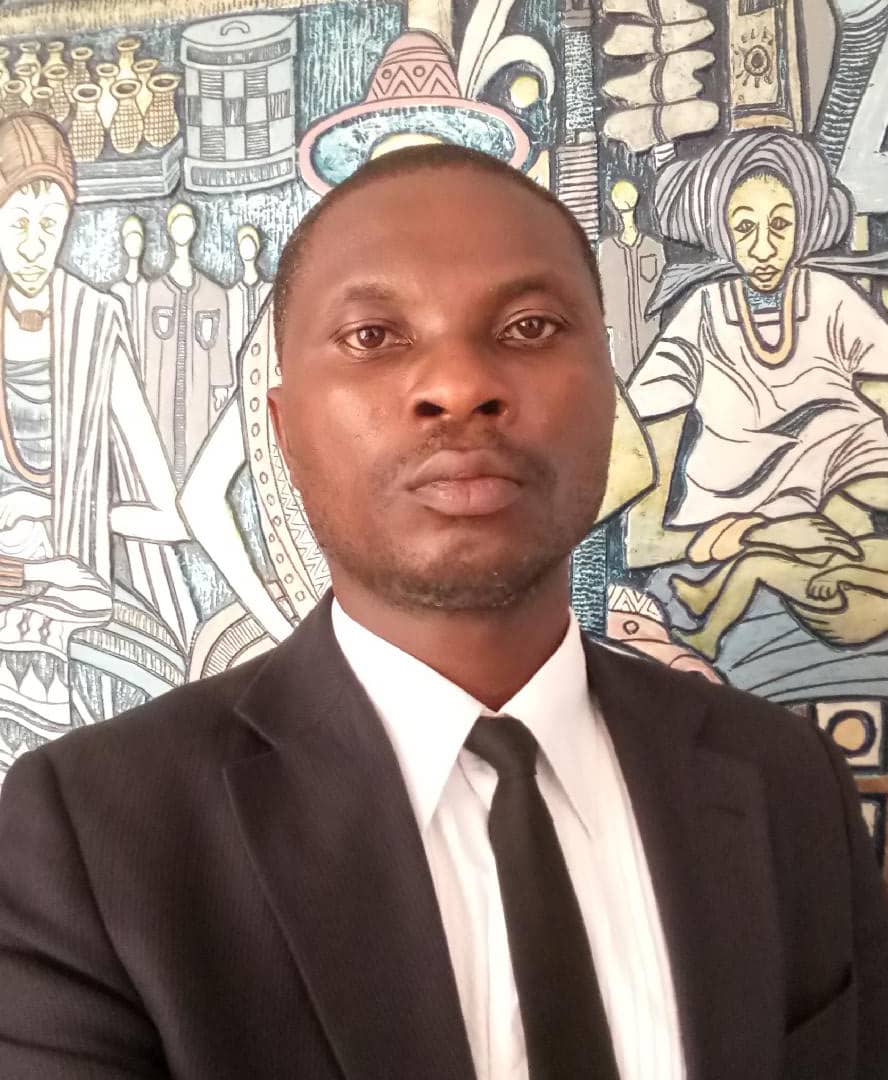
Copyright 2020 CITY LAWYER. Please send emails to citylawyermag@gmail.com. Join us on Facebook at https://web.facebook.com/City-Lawyer-Magazine-434937936684320 and on TWITTER at https://twitter.com/CityLawyerMag. To ADVERTISE in CITY LAWYER, please email citylawyermag@gmail.com or call 08138380083. All materials available on this Website are protected by copyright, trade mark and other proprietary and intellectual property laws. You may not use any of our intellectual property rights without our express written consent or attribution to www.citylawyermag.com. However, you are permitted to print or save to your individual PC, tablet or storage extracts from this Website for your own personal non-commercial use.
